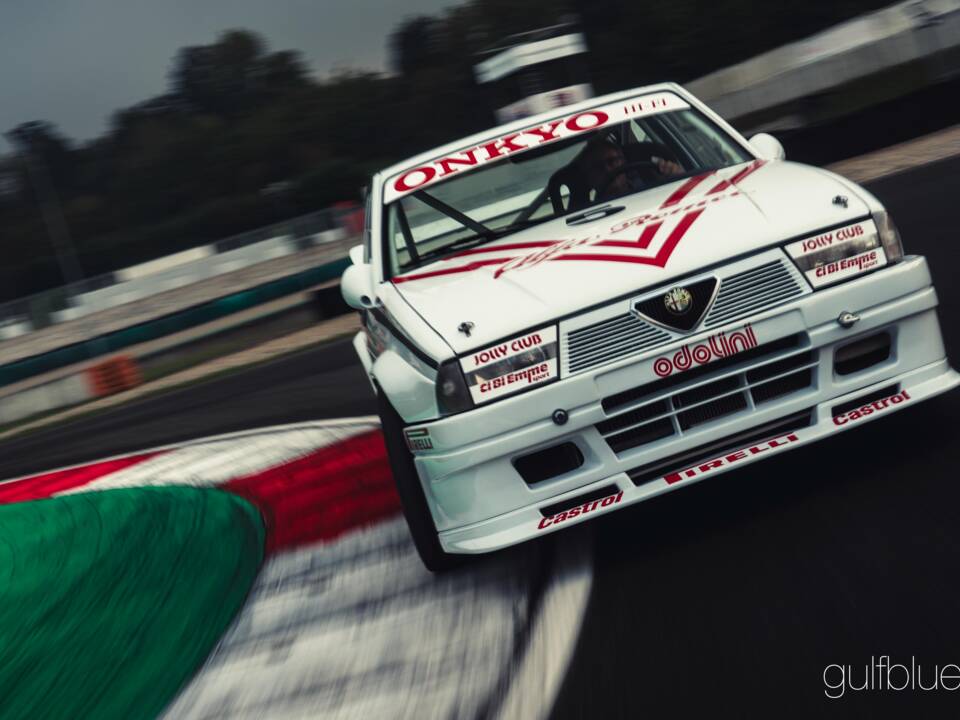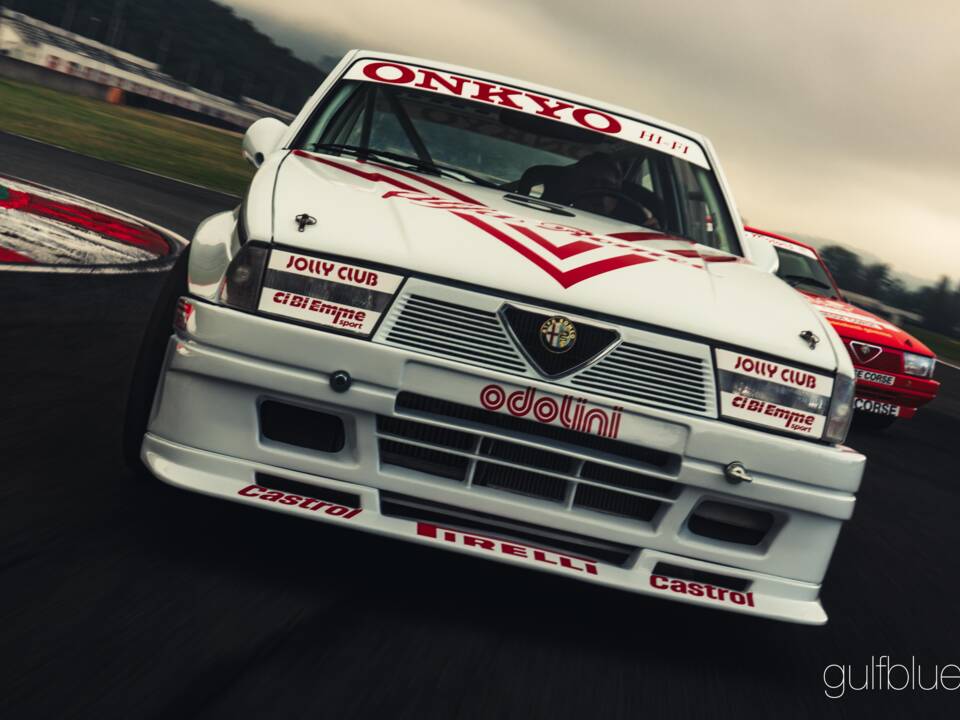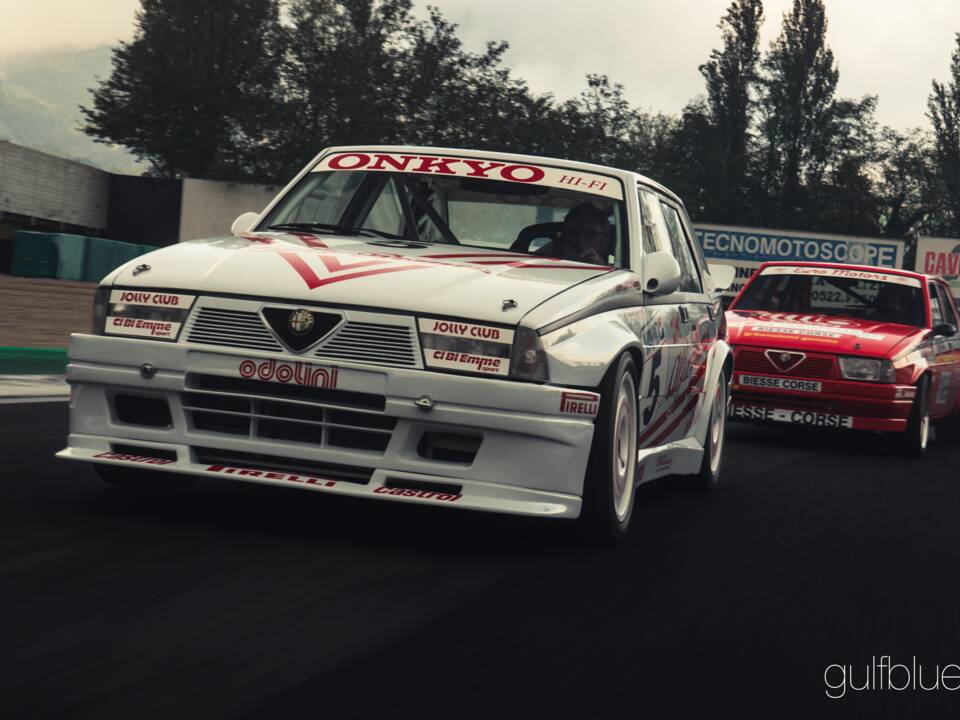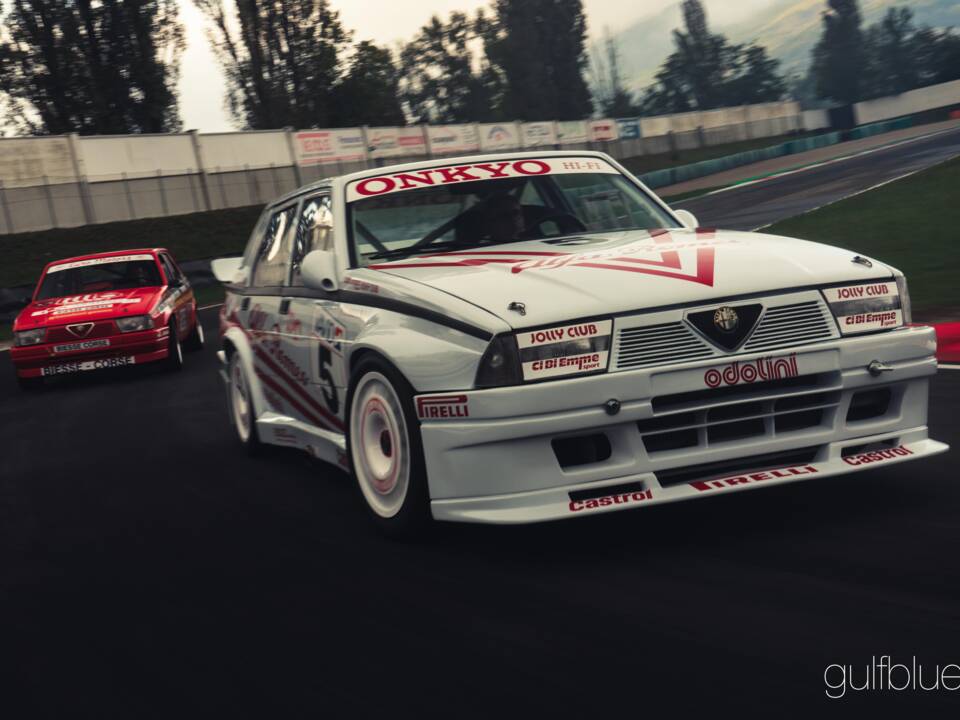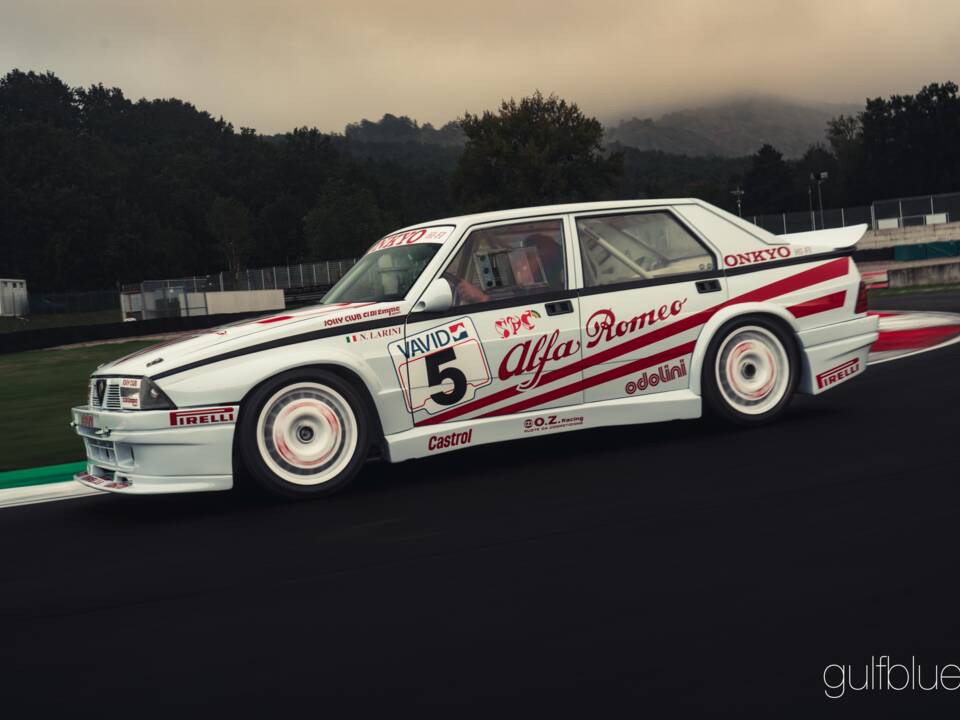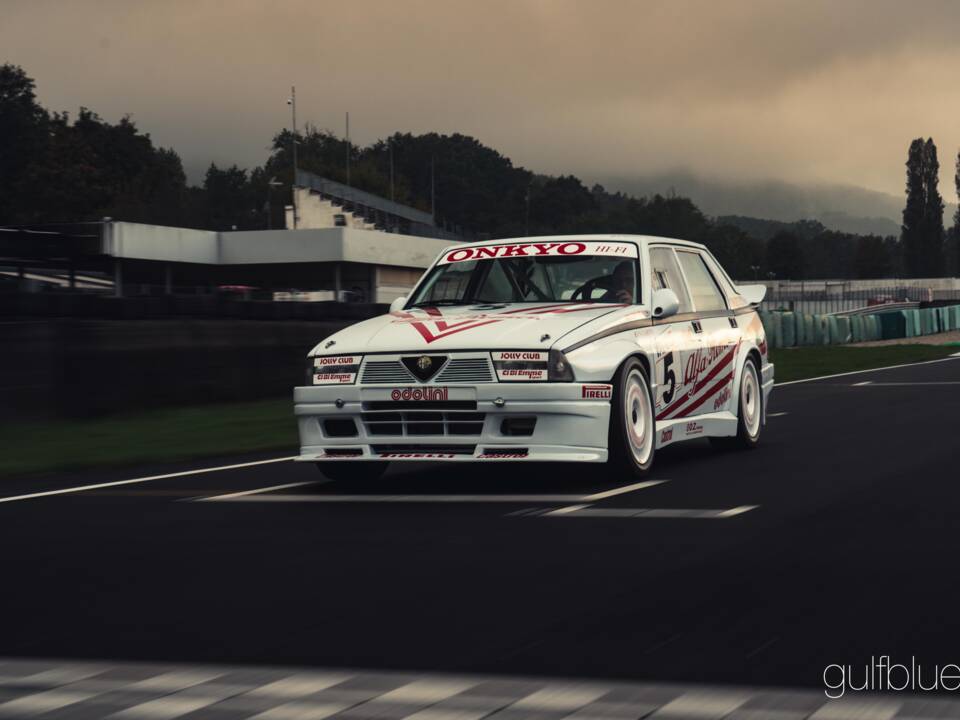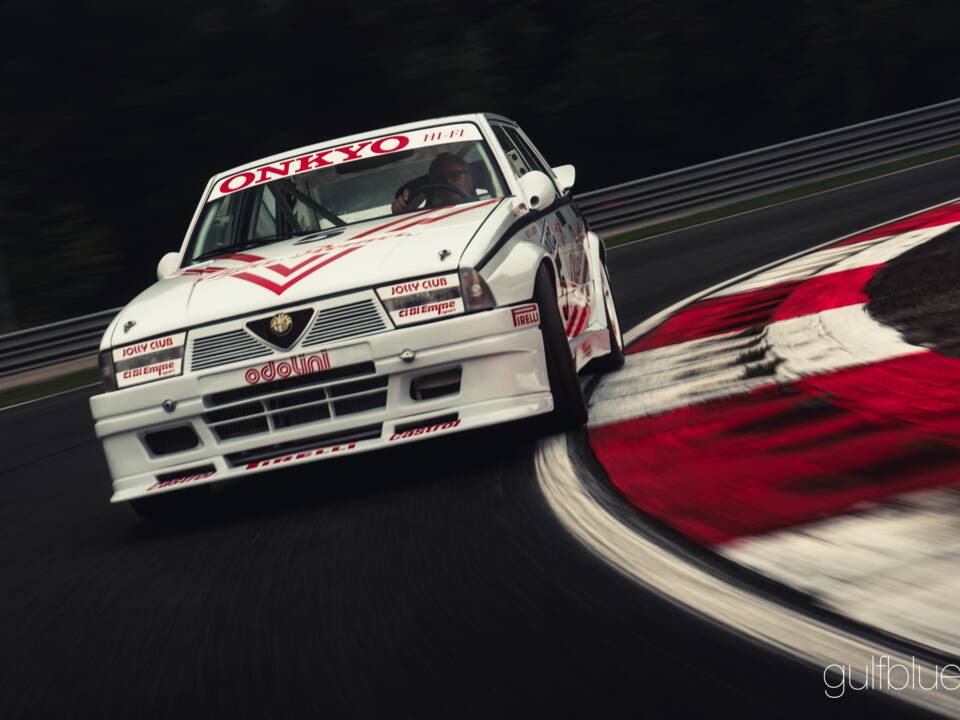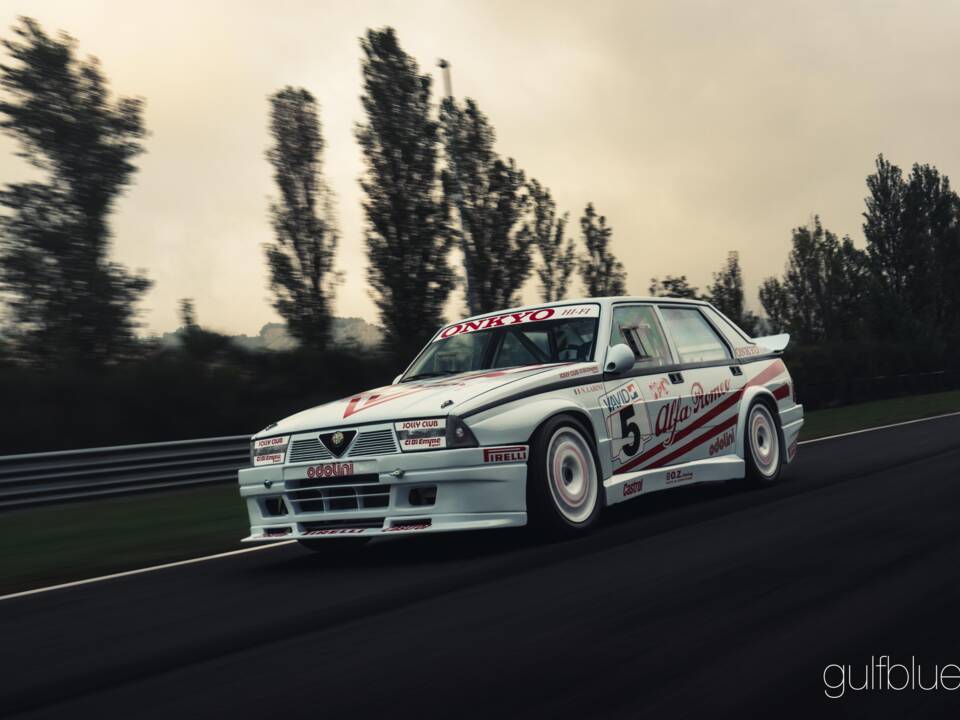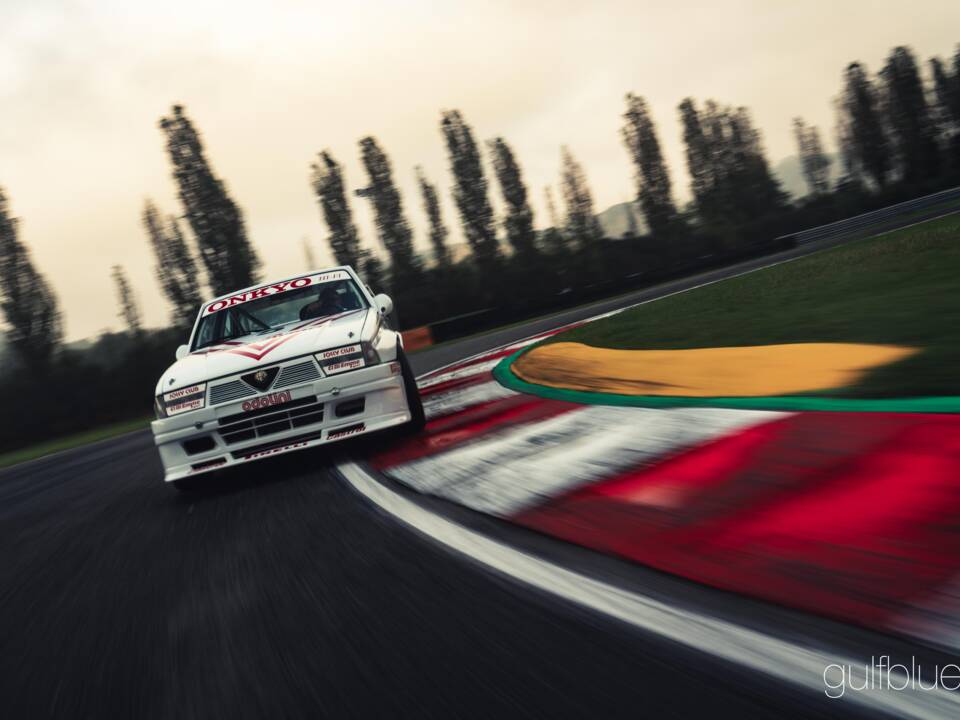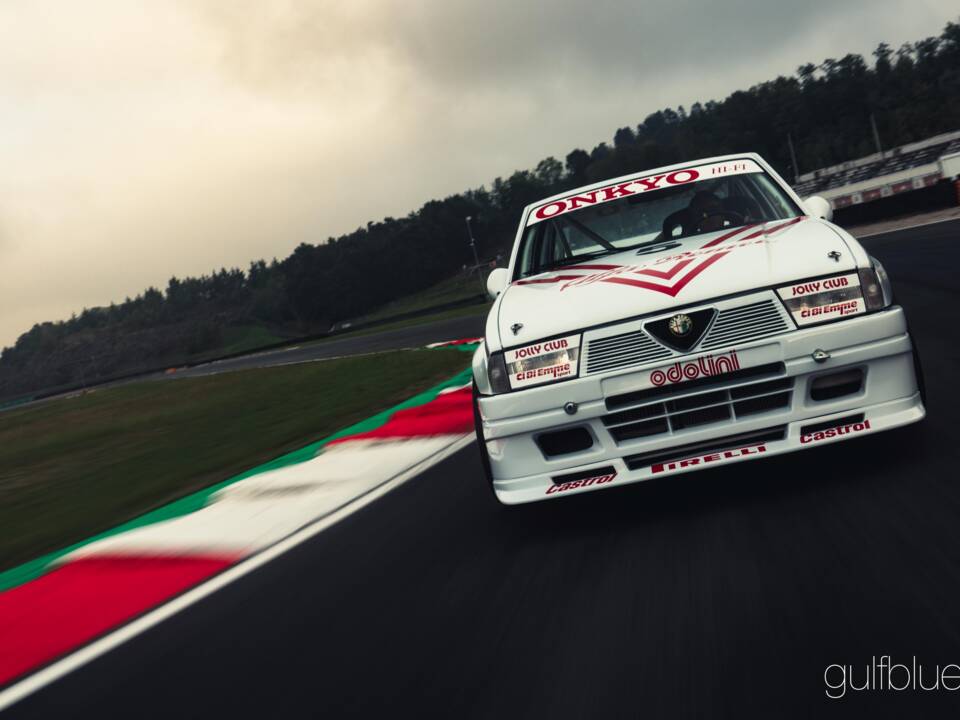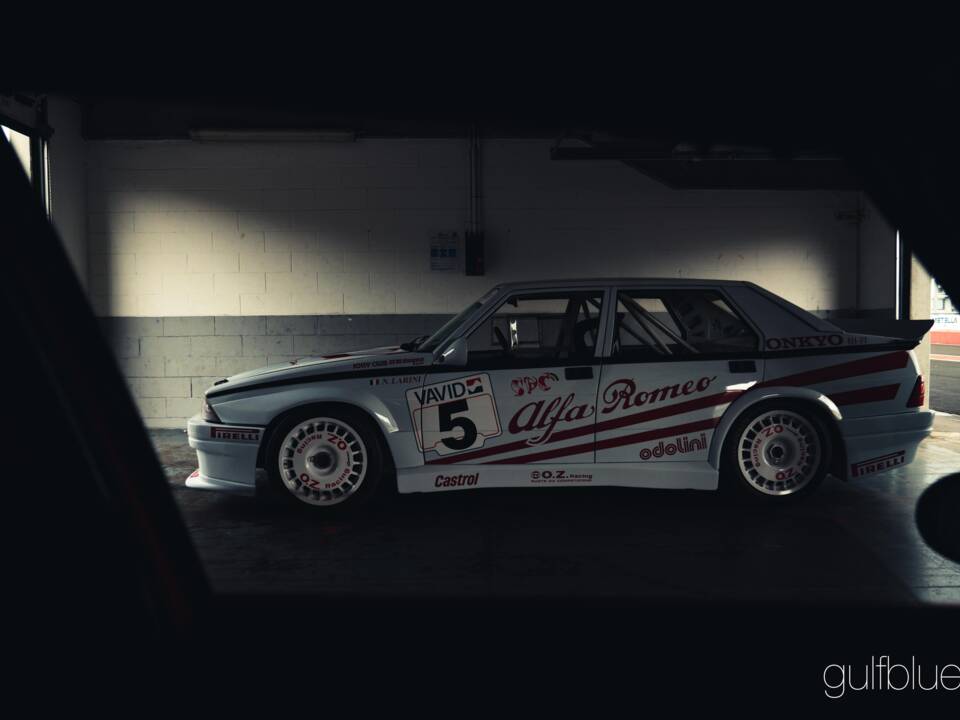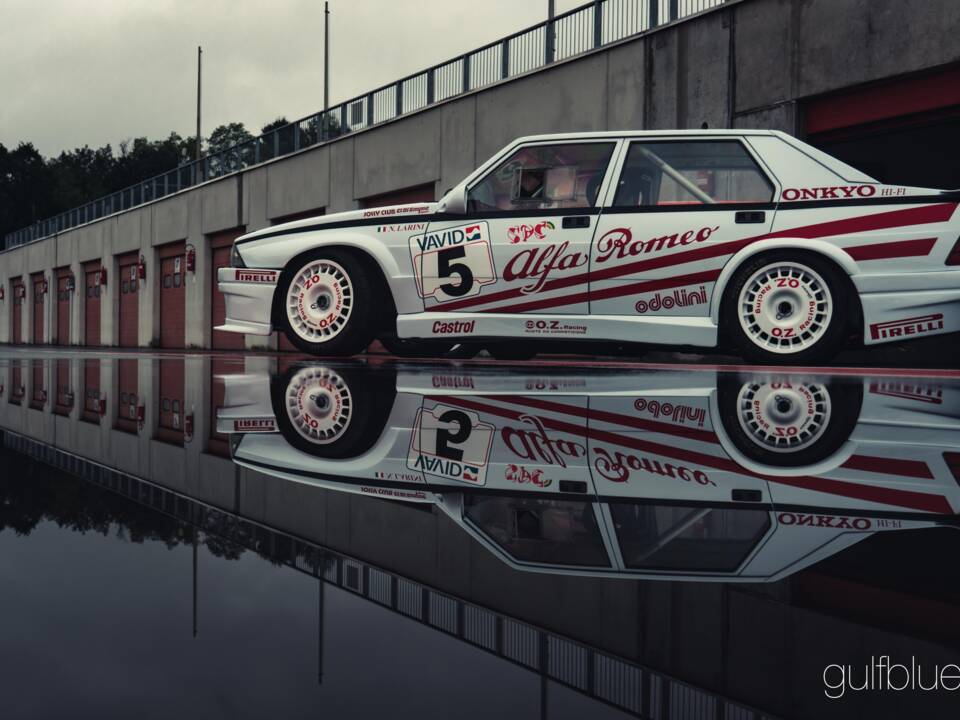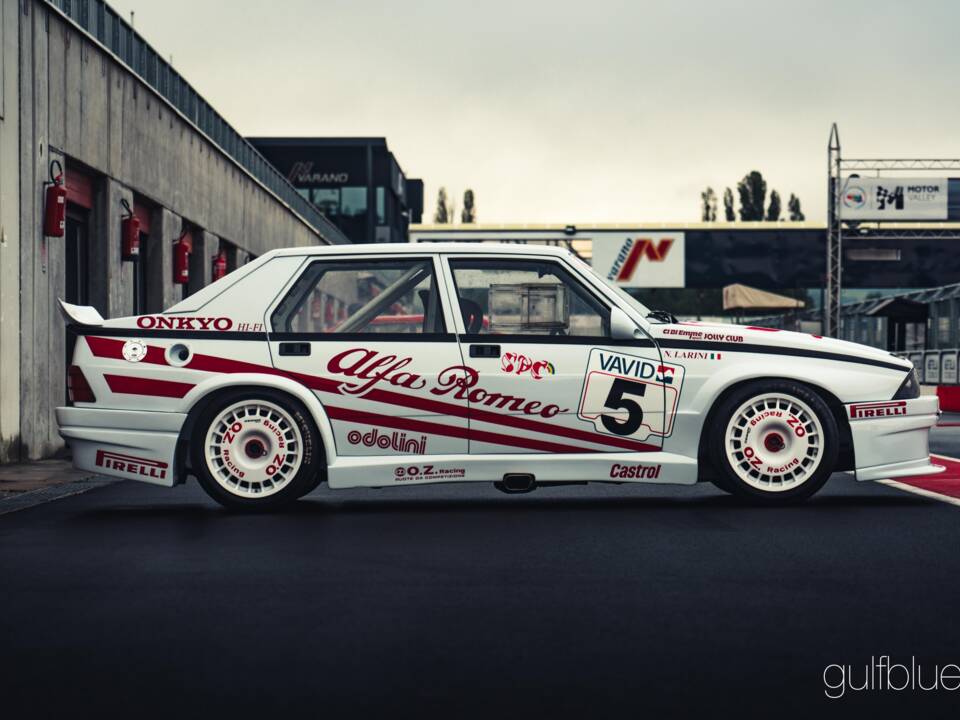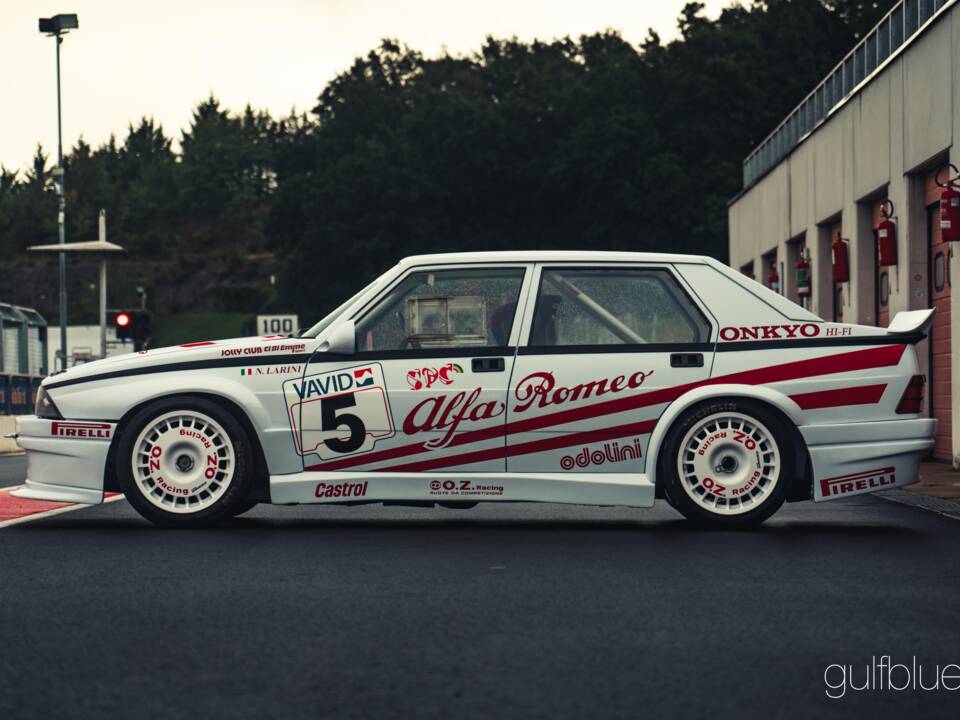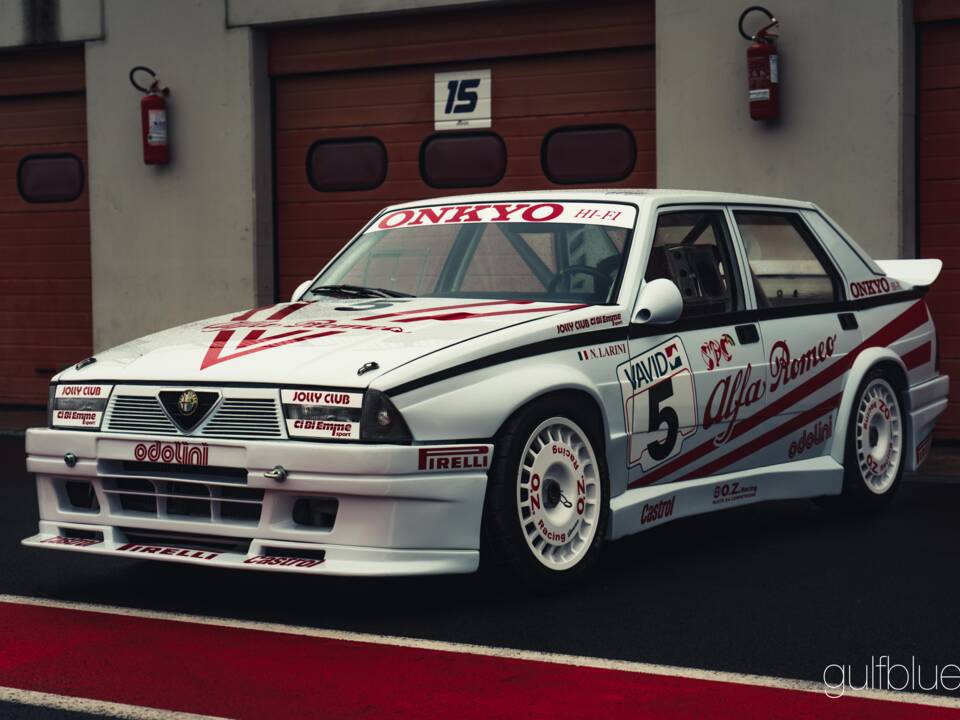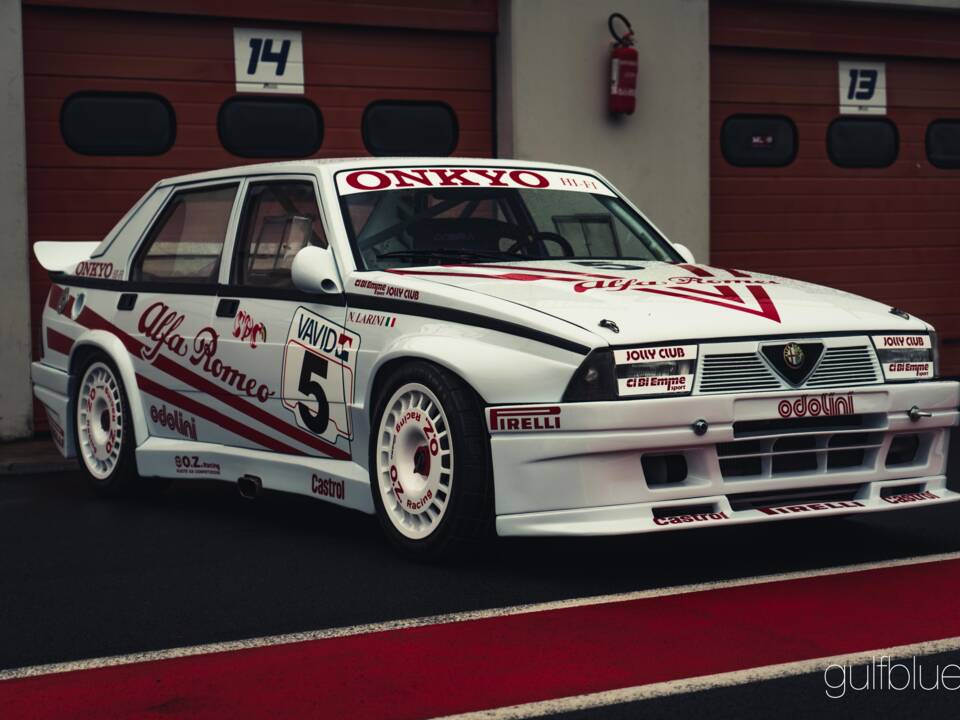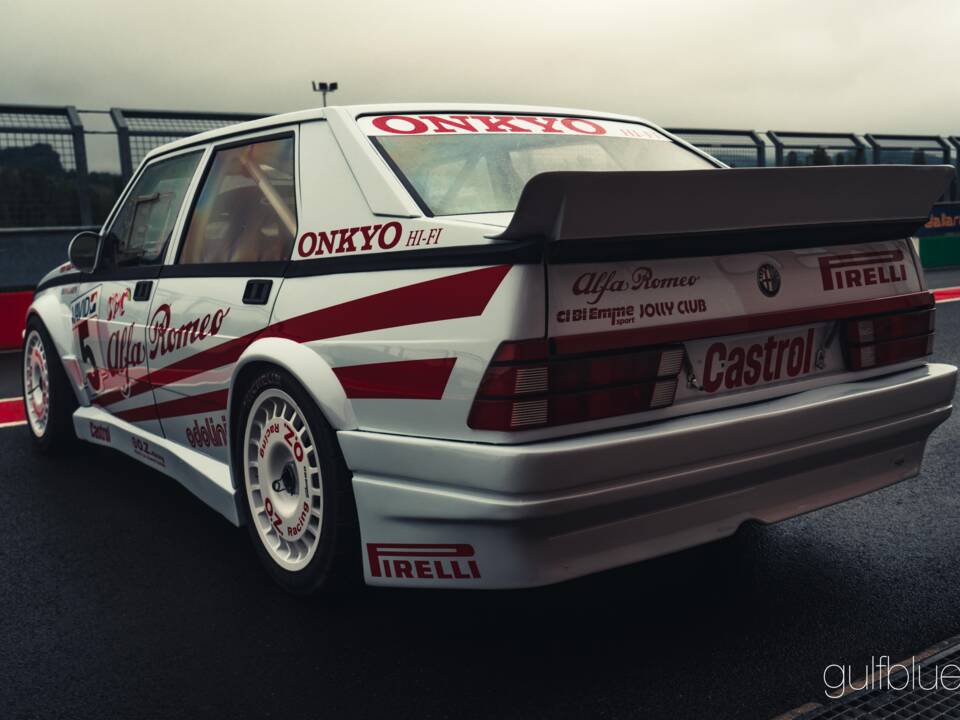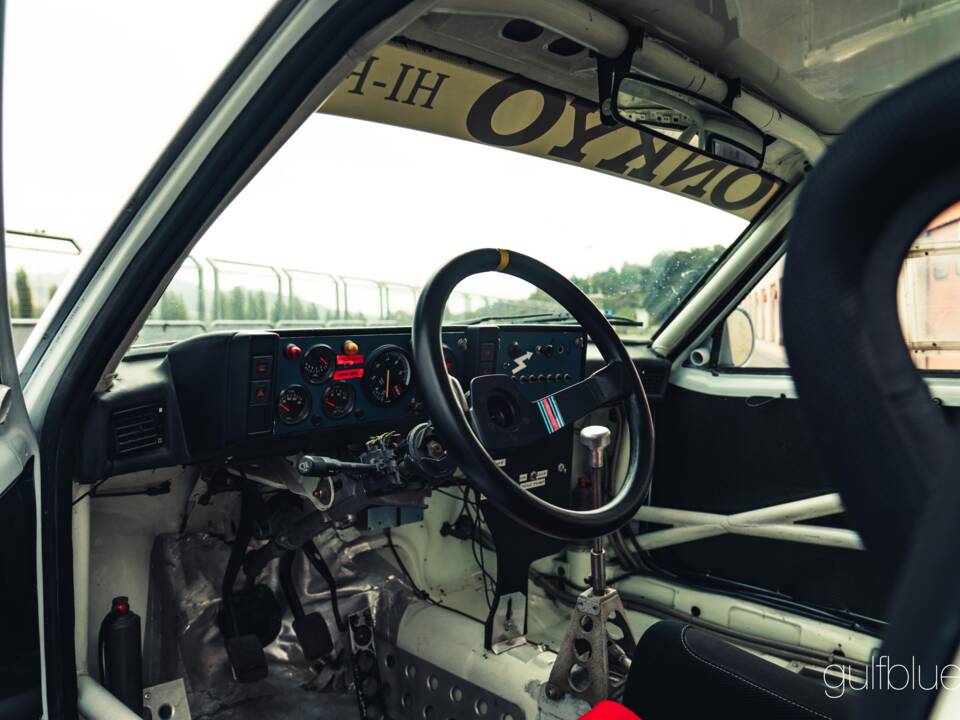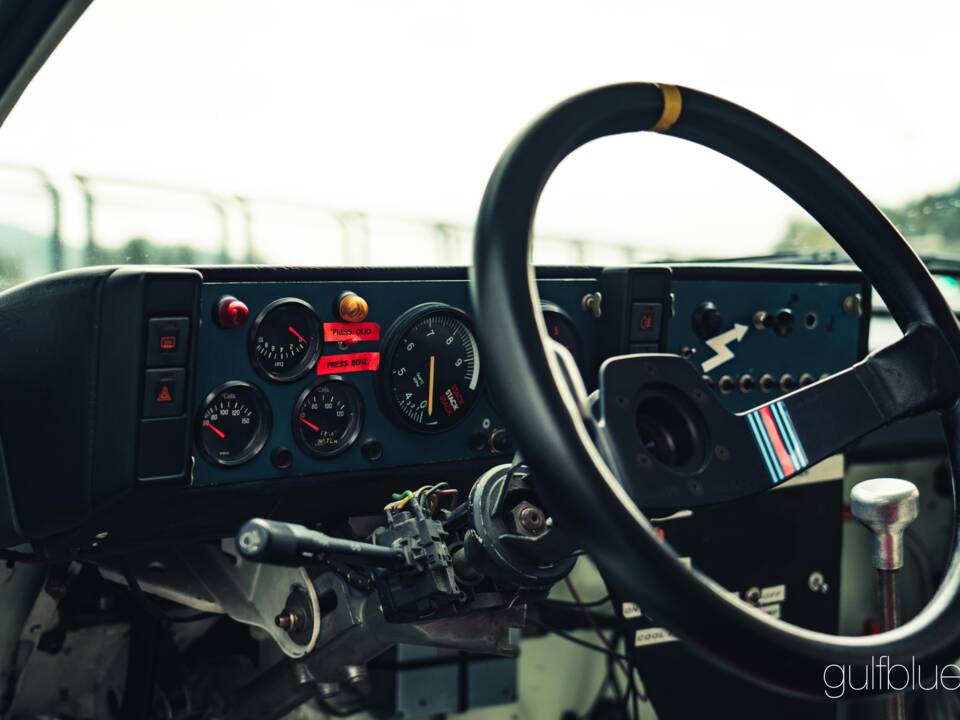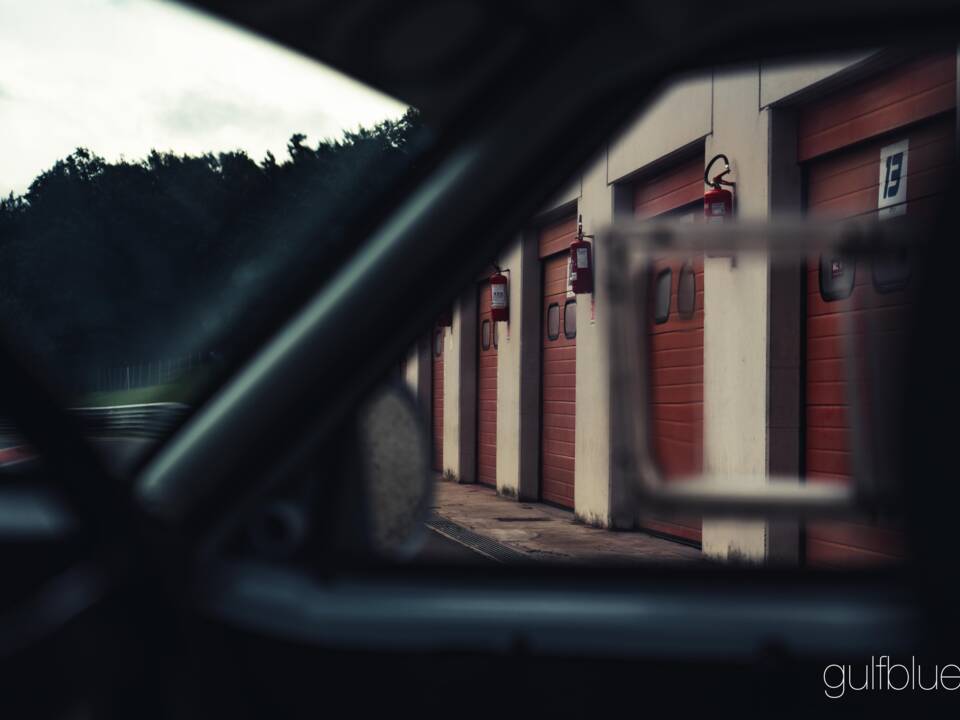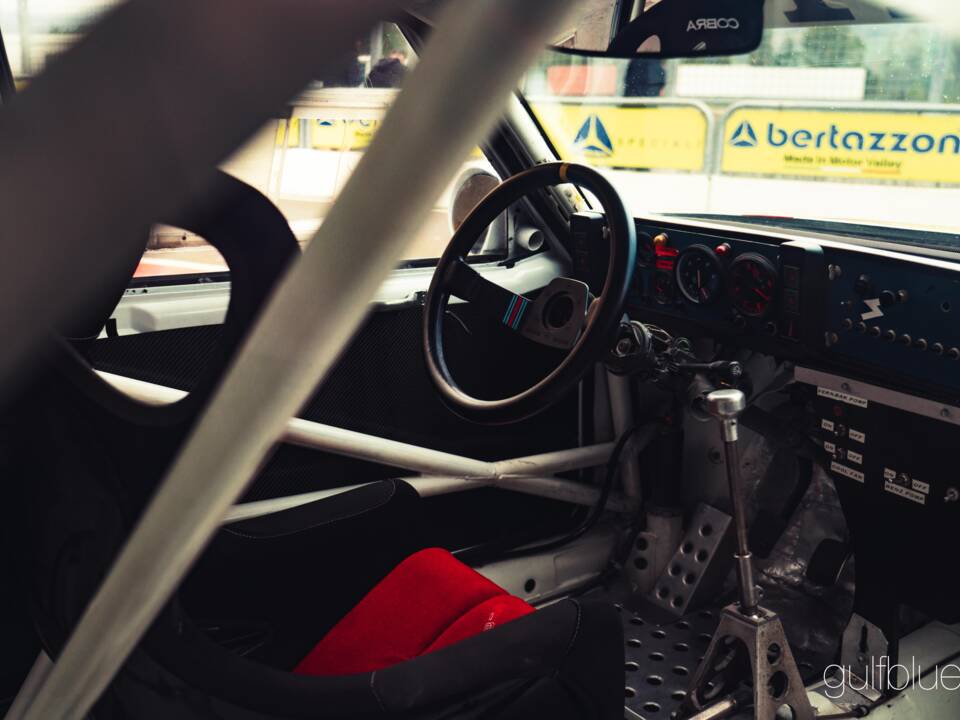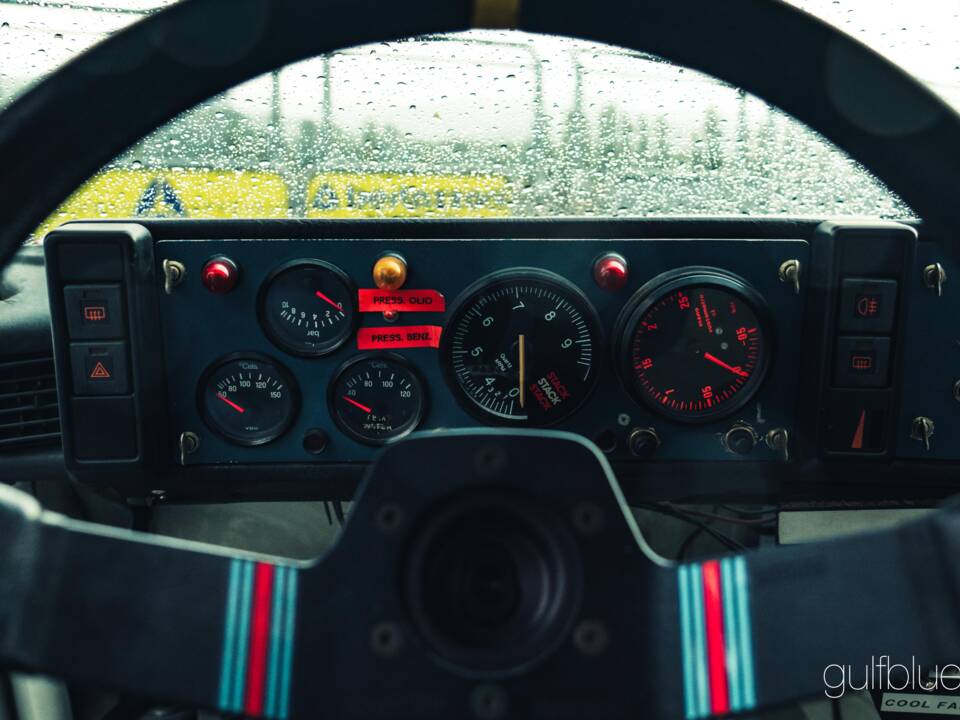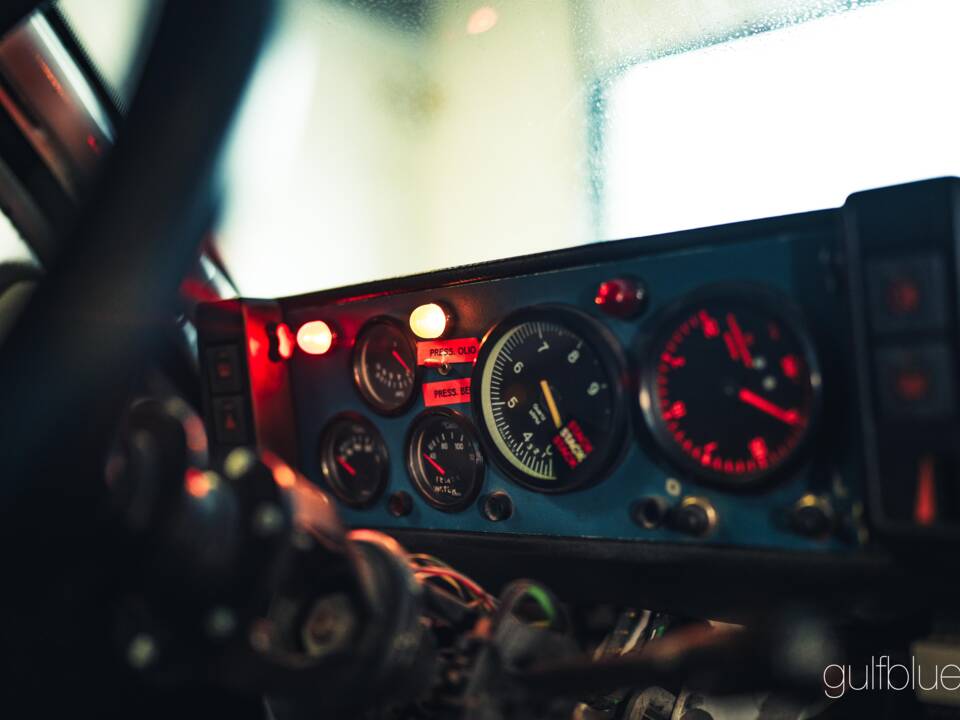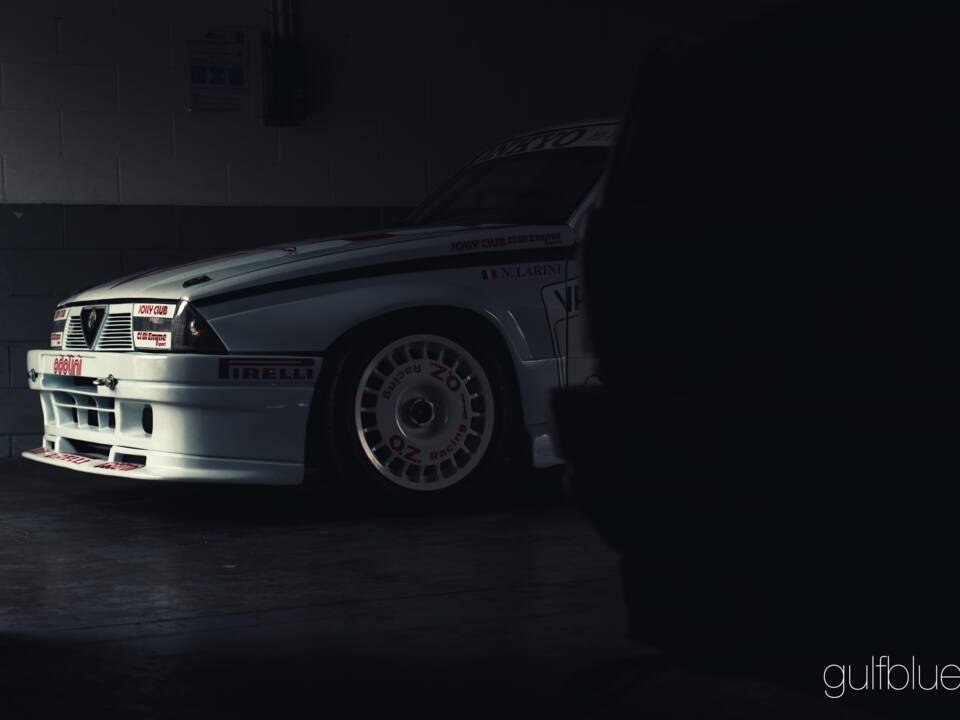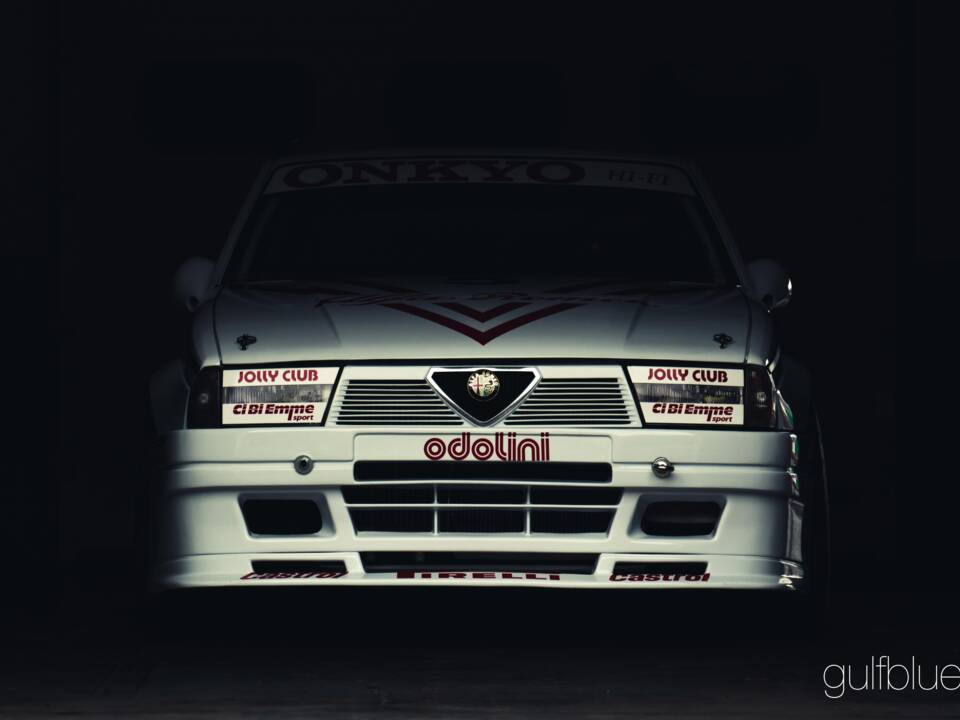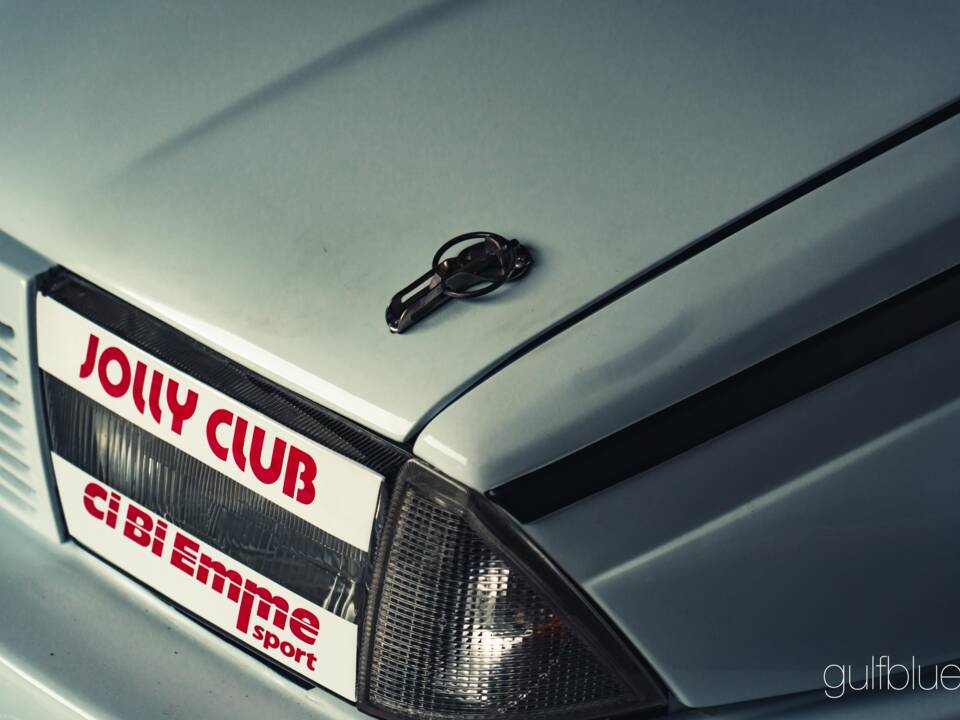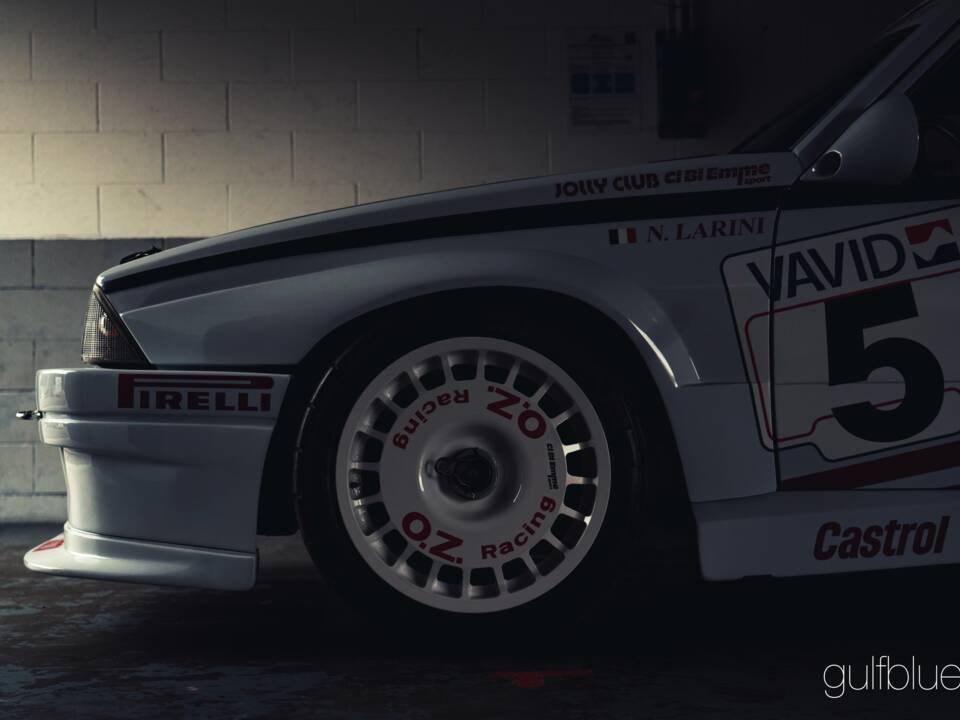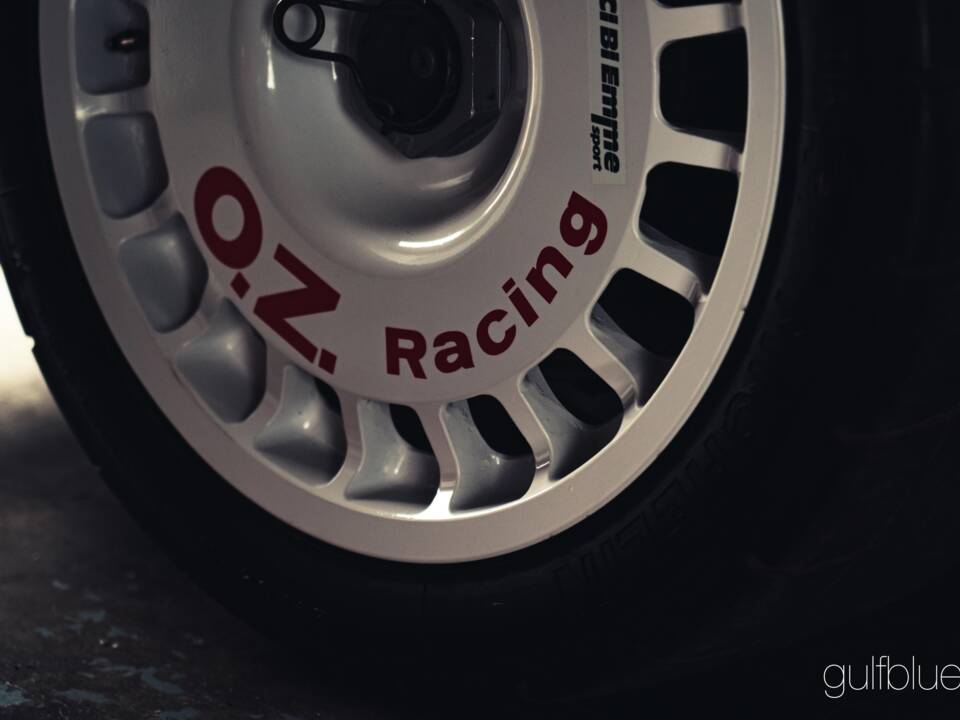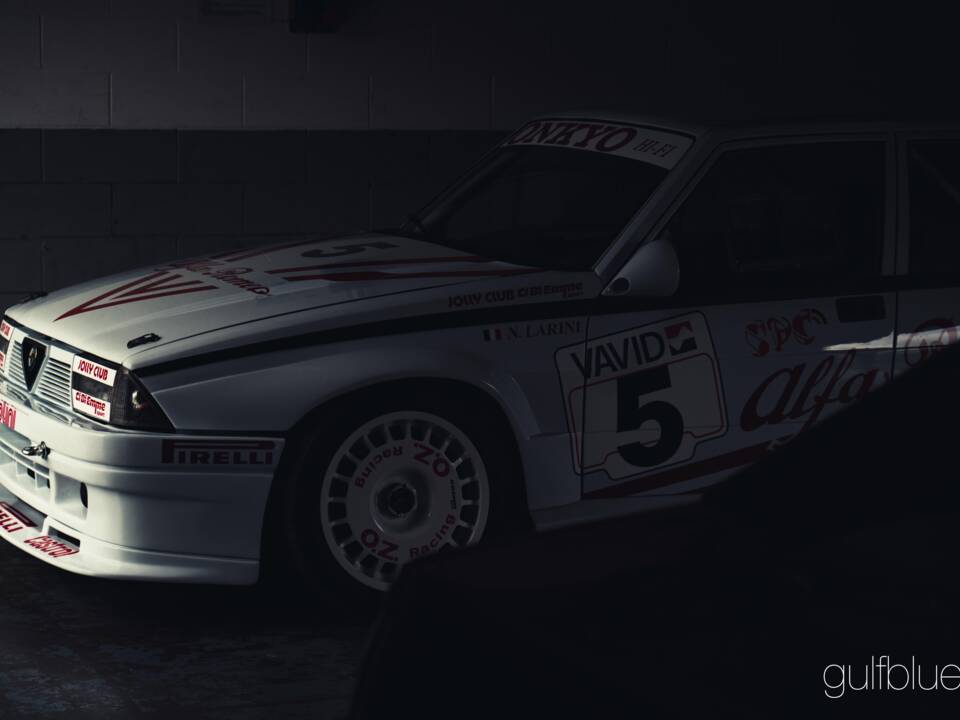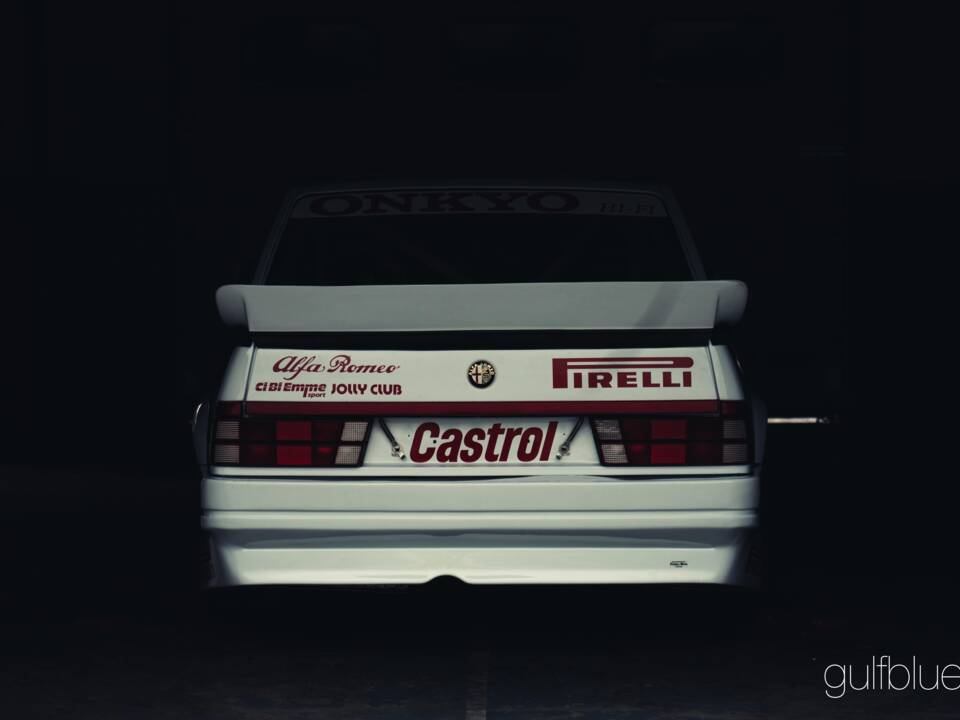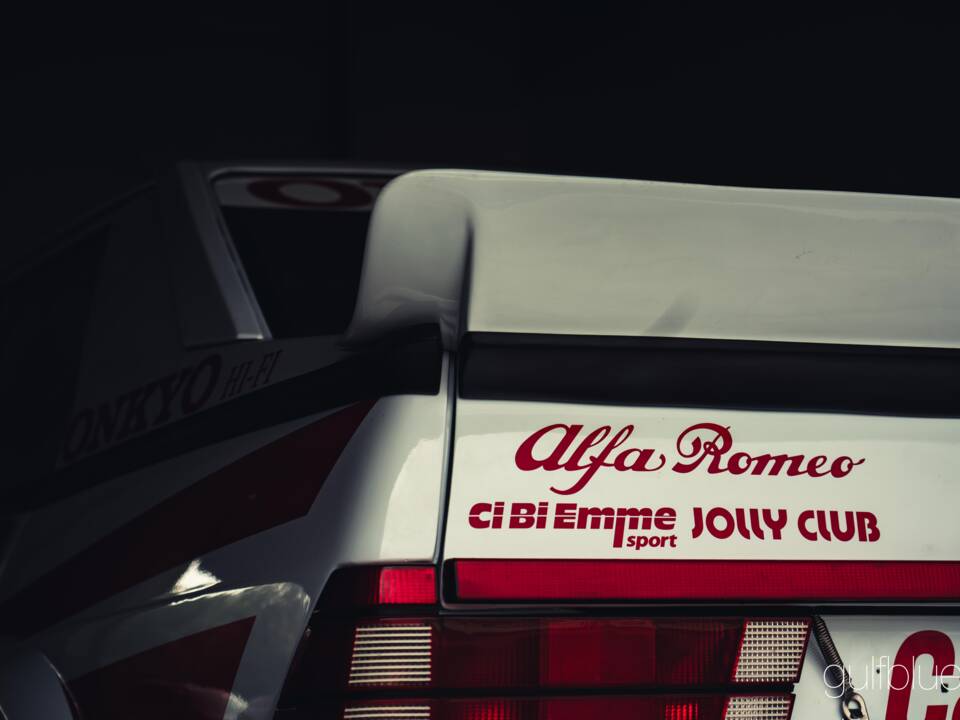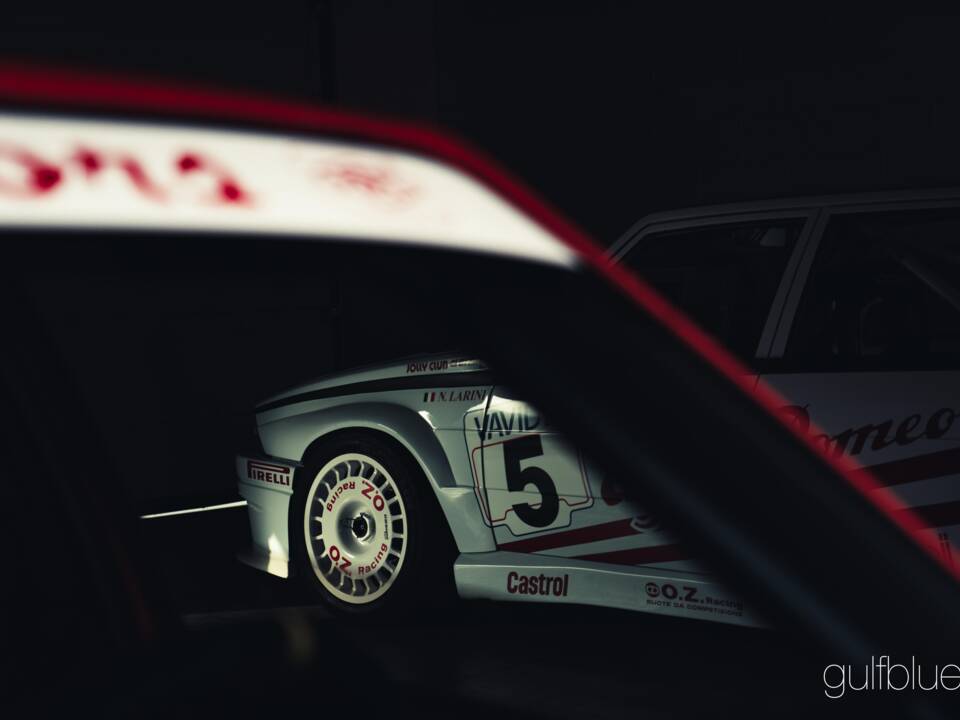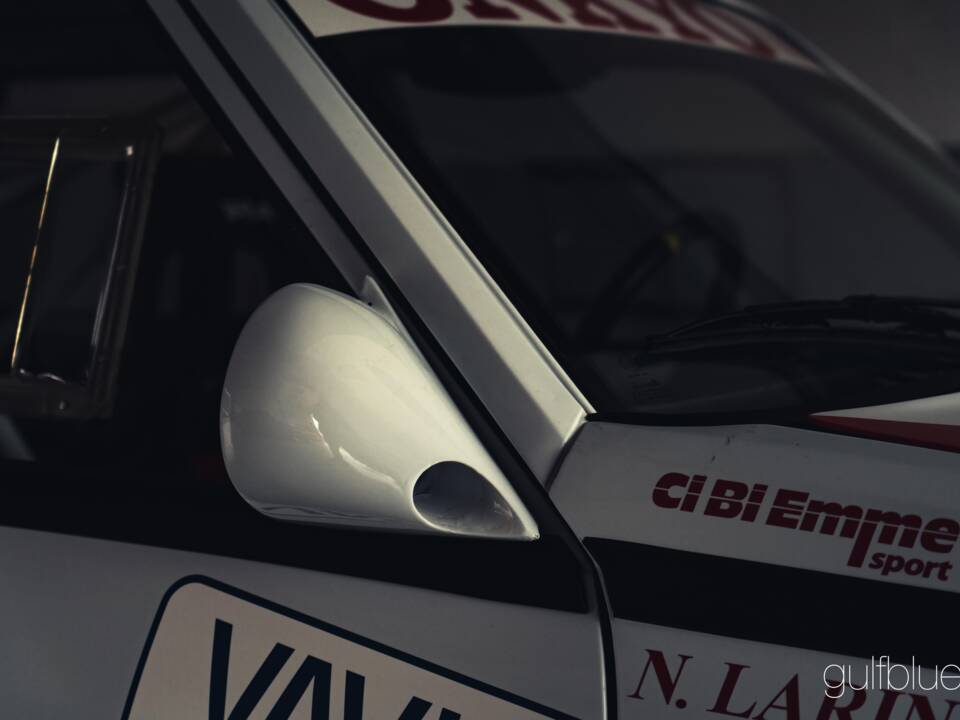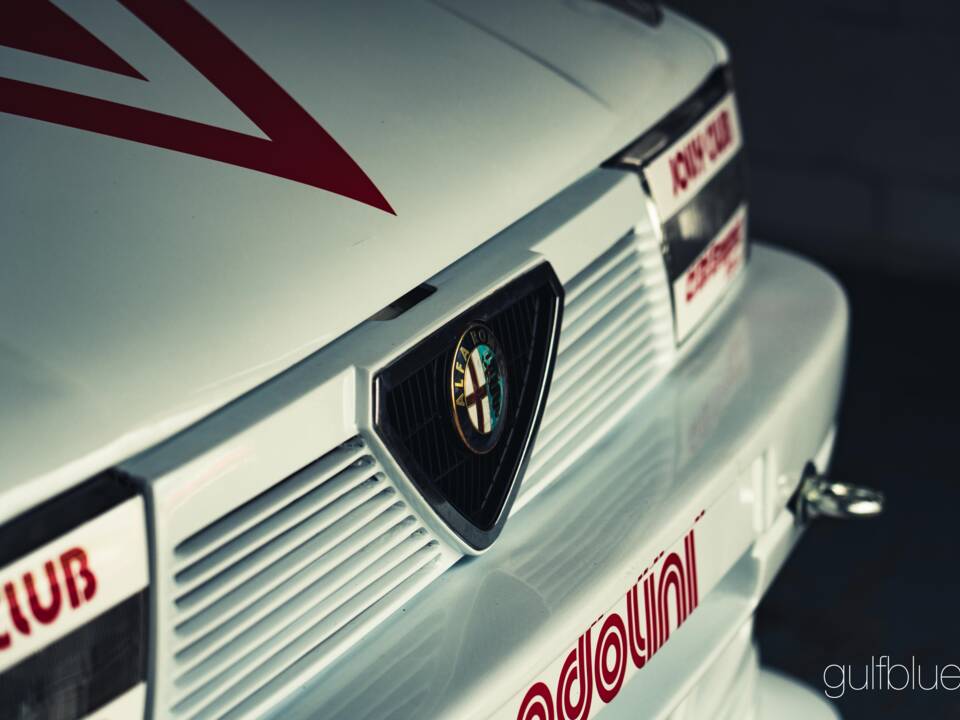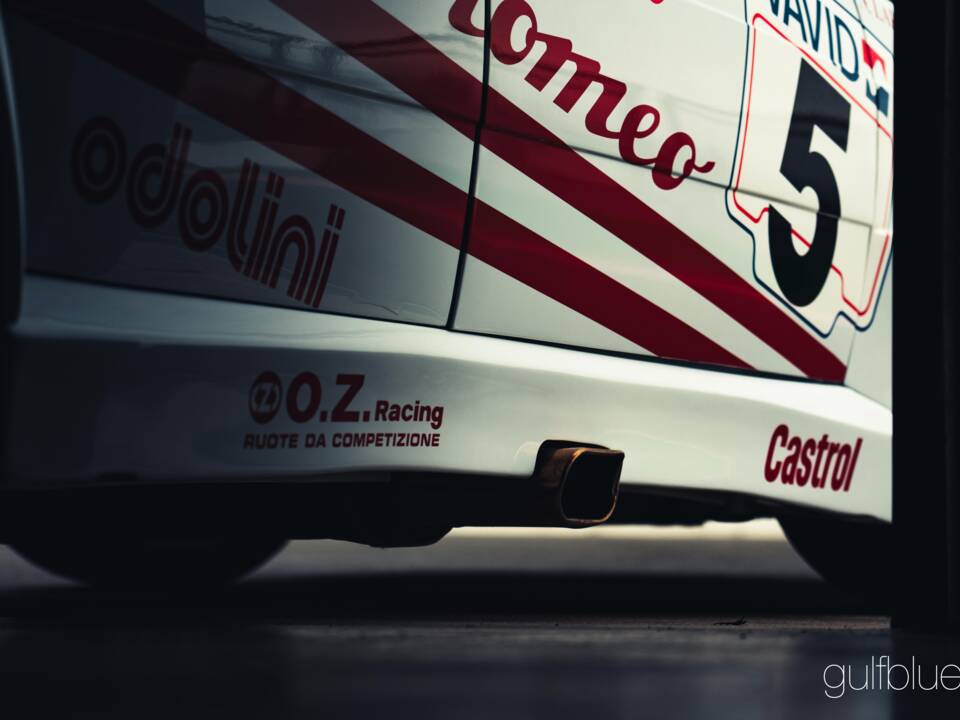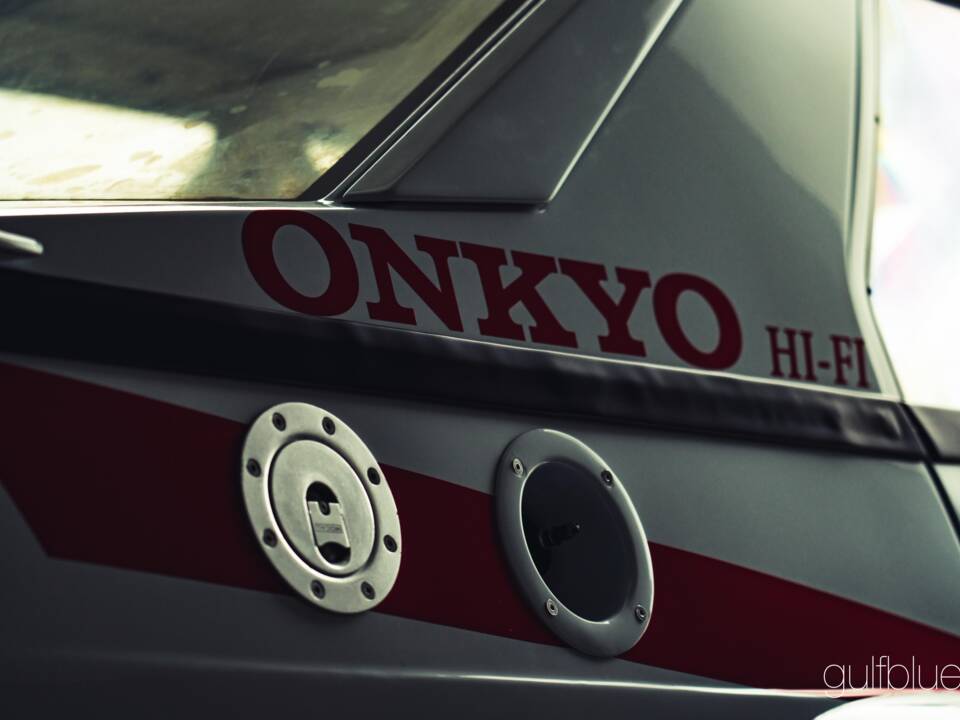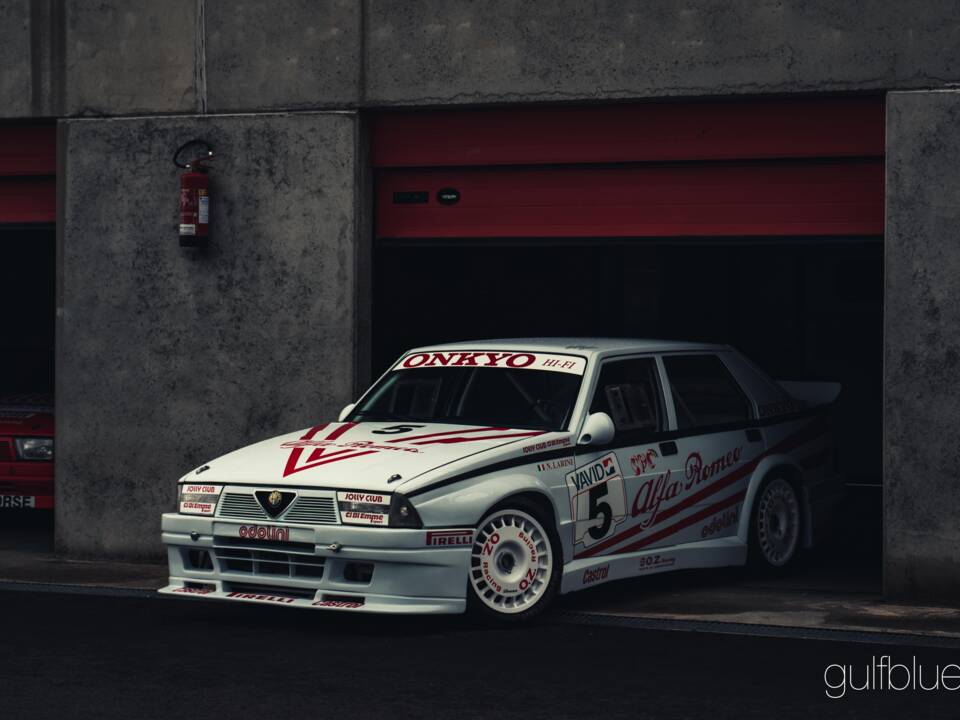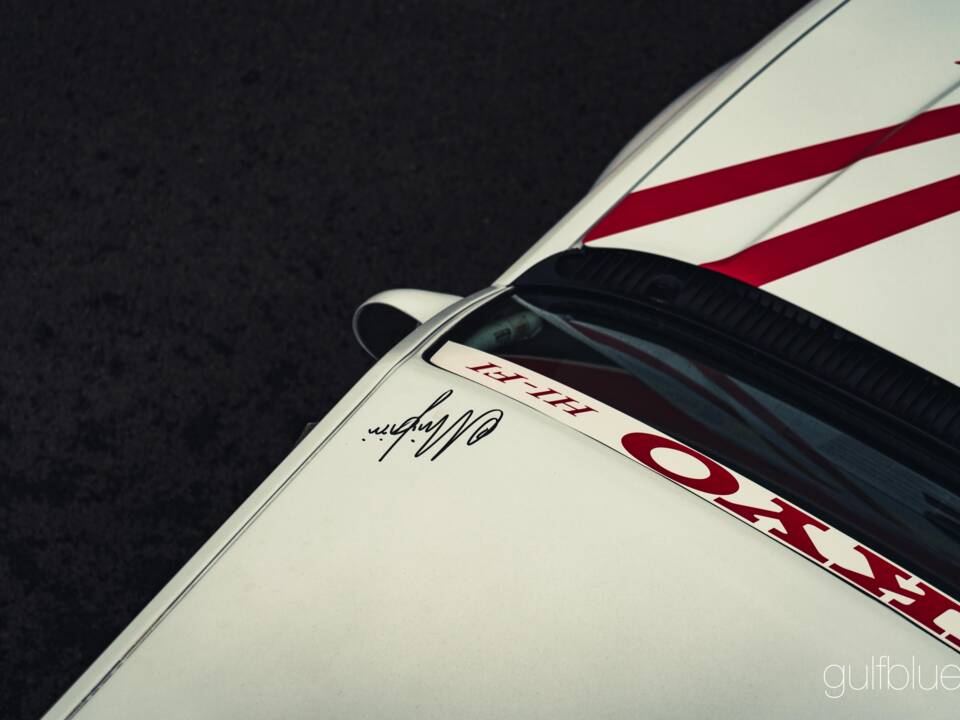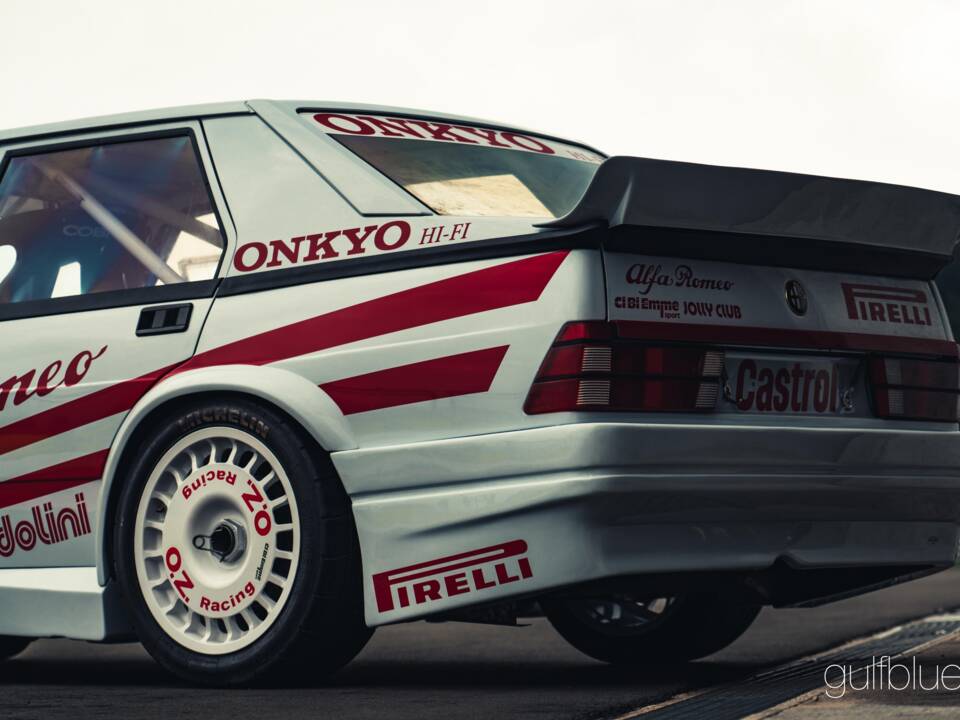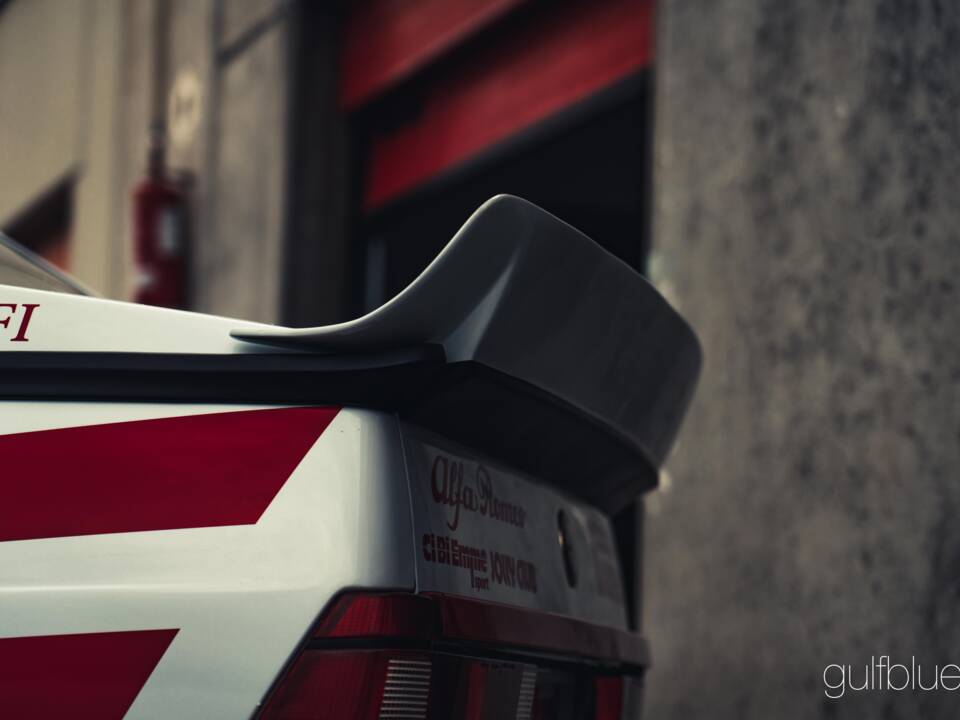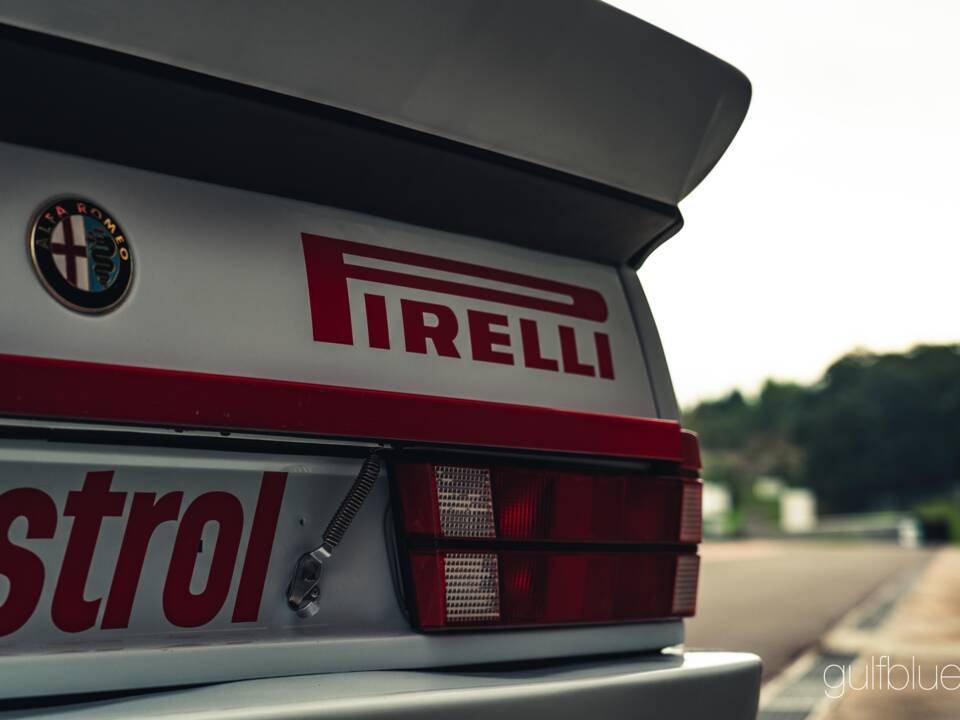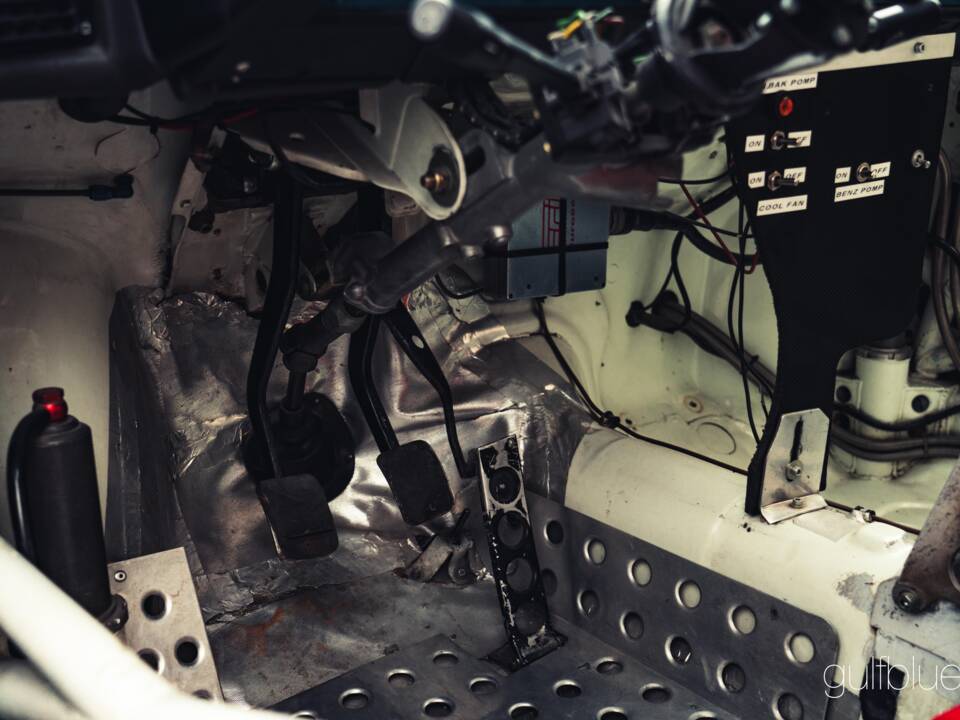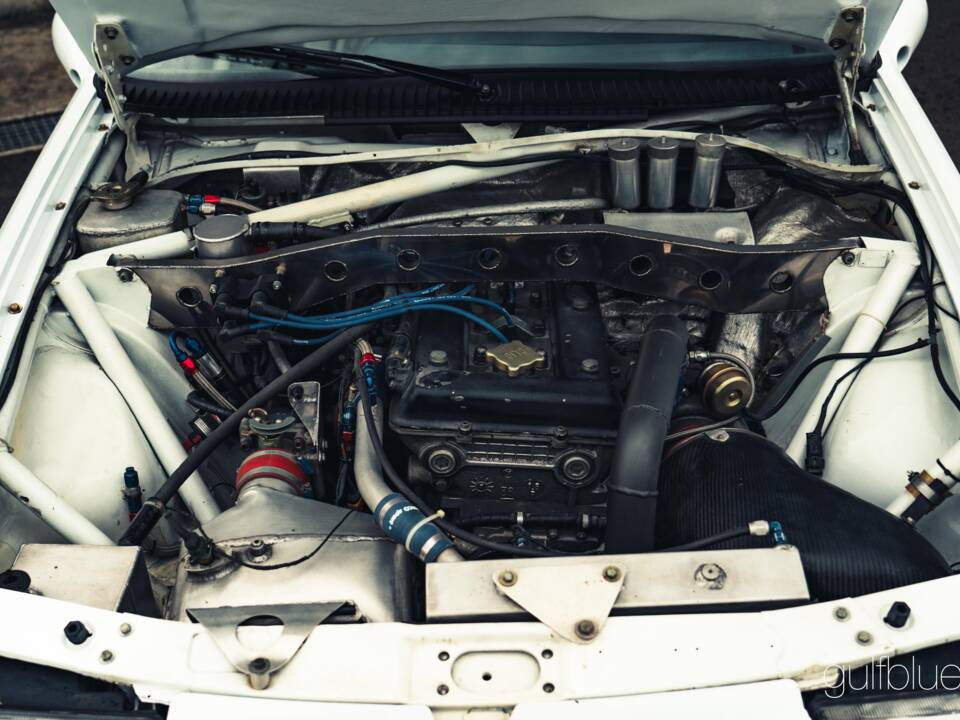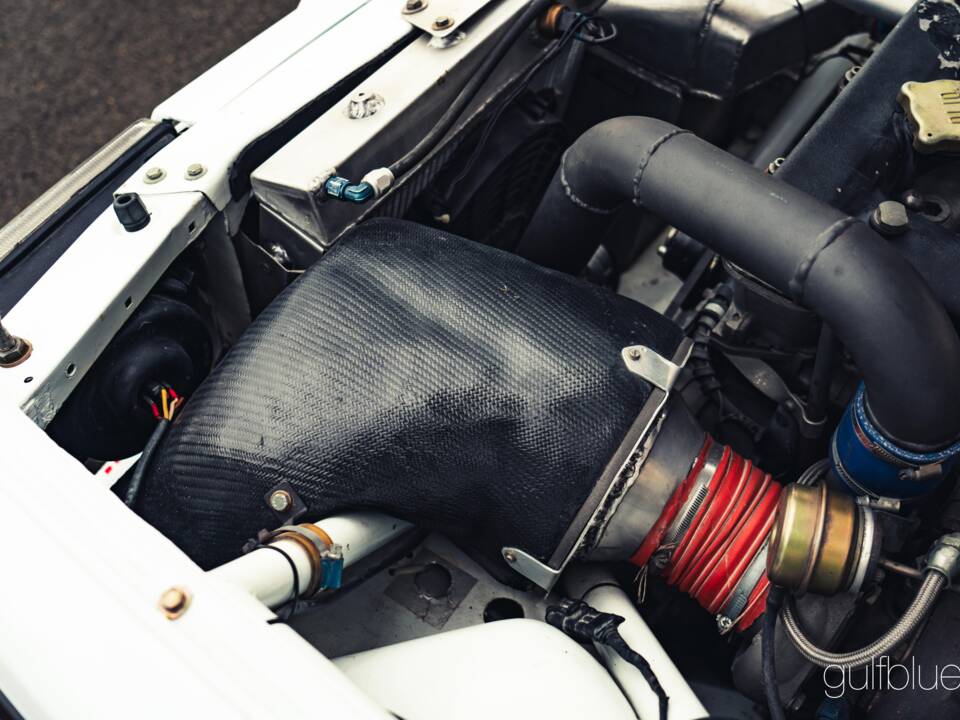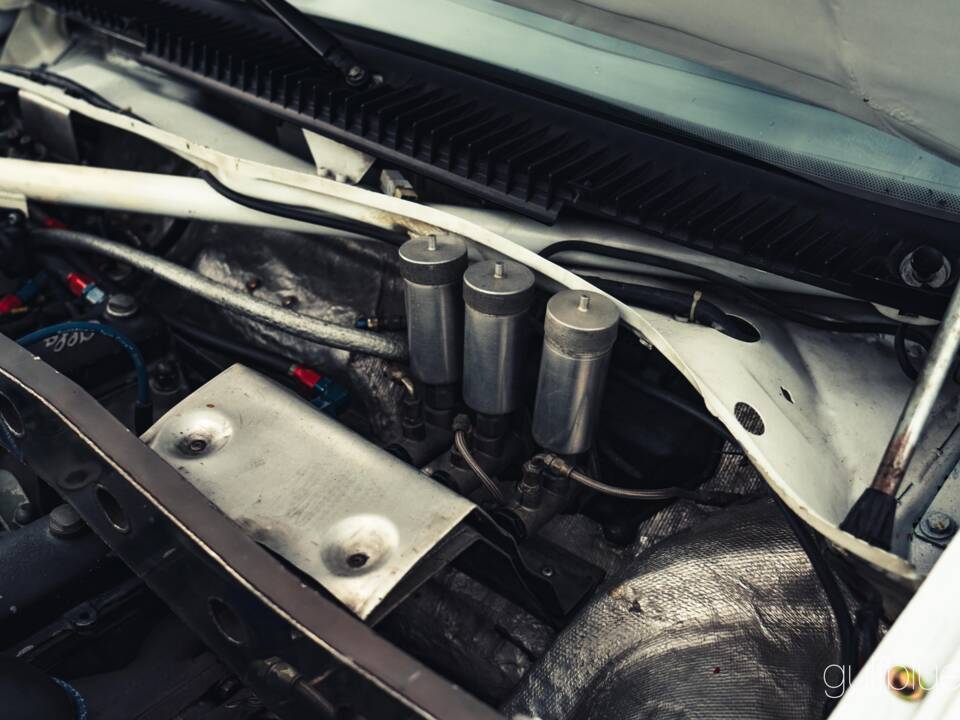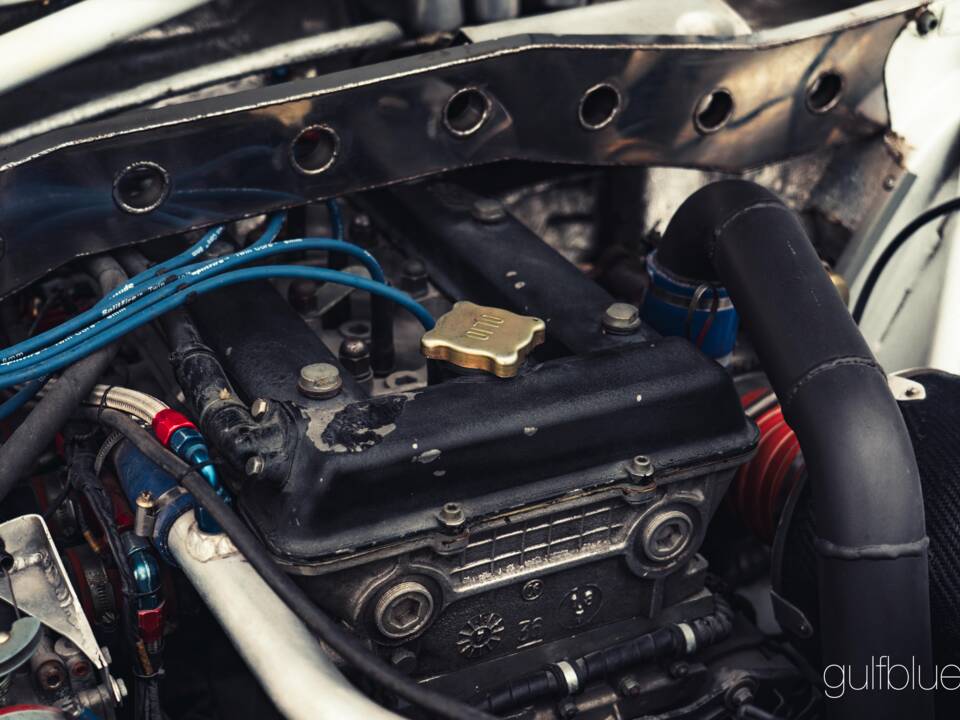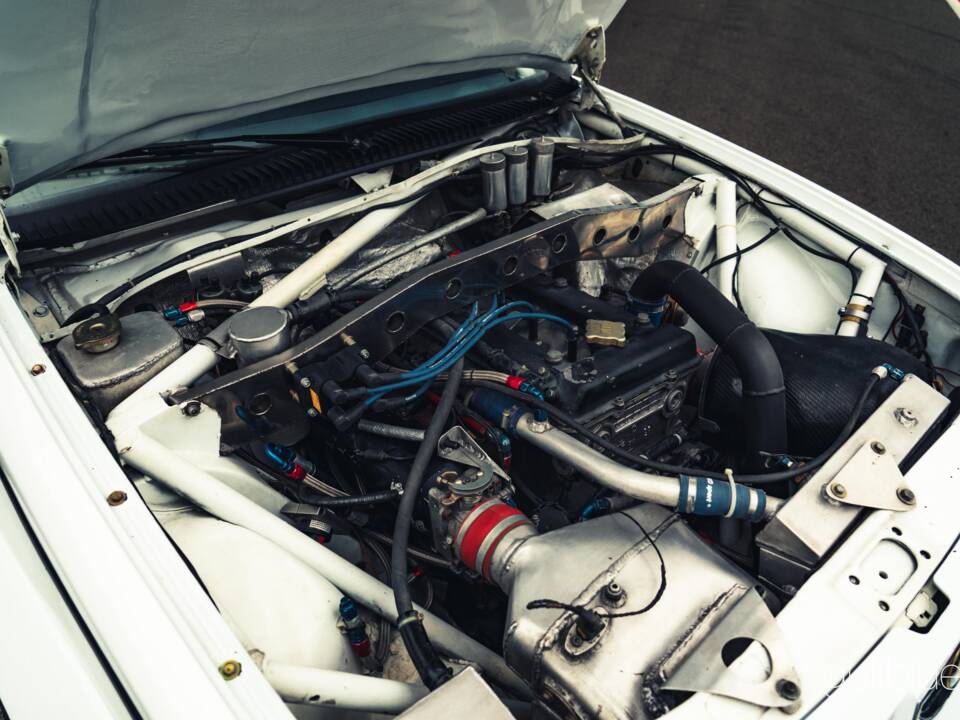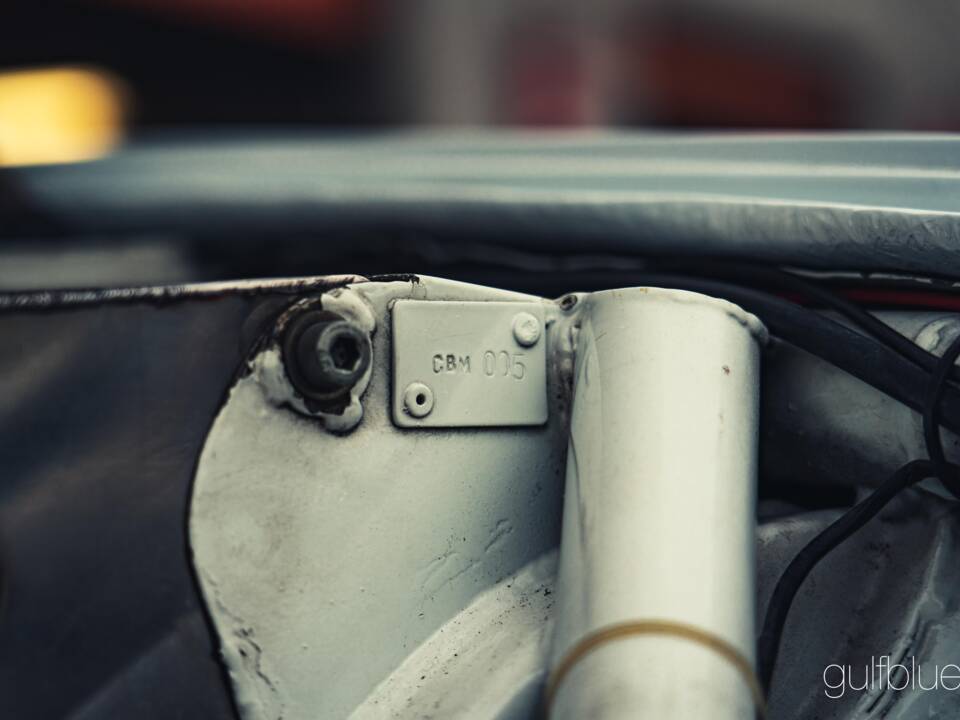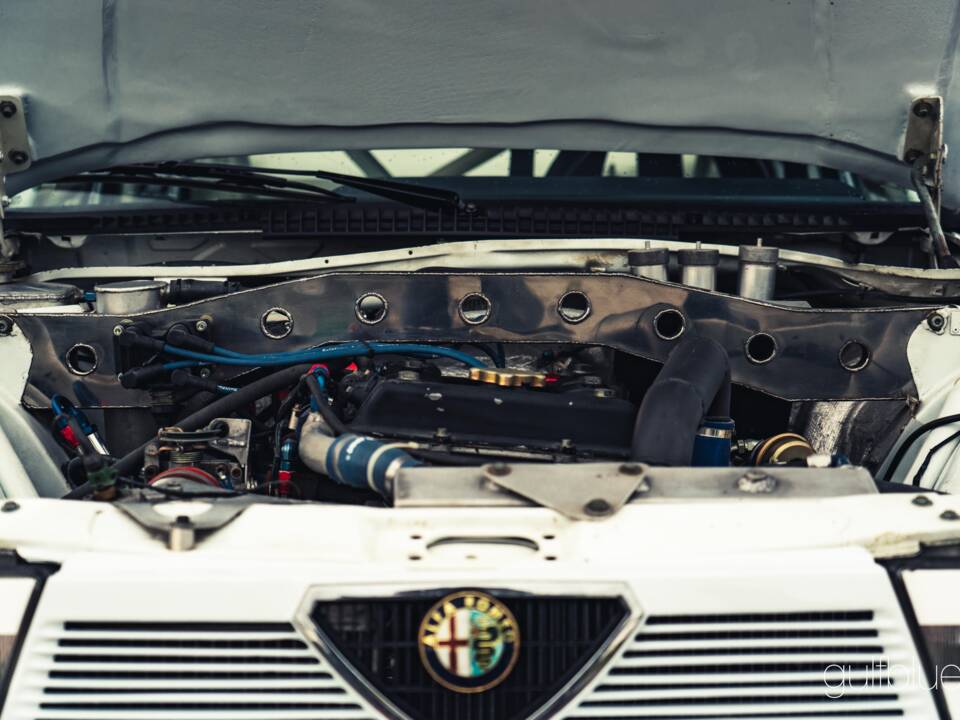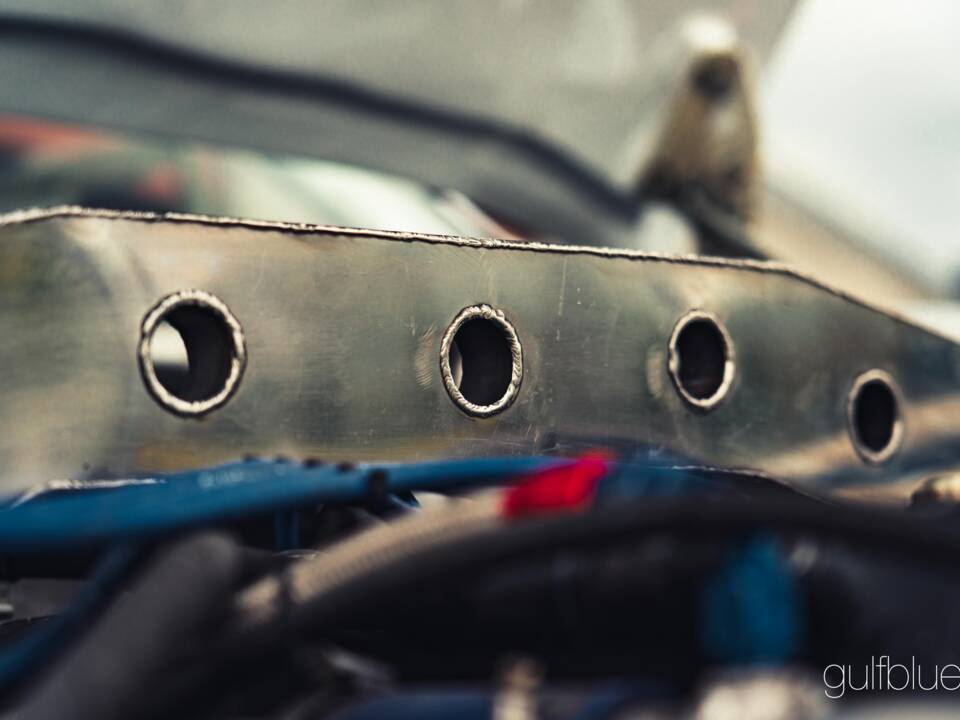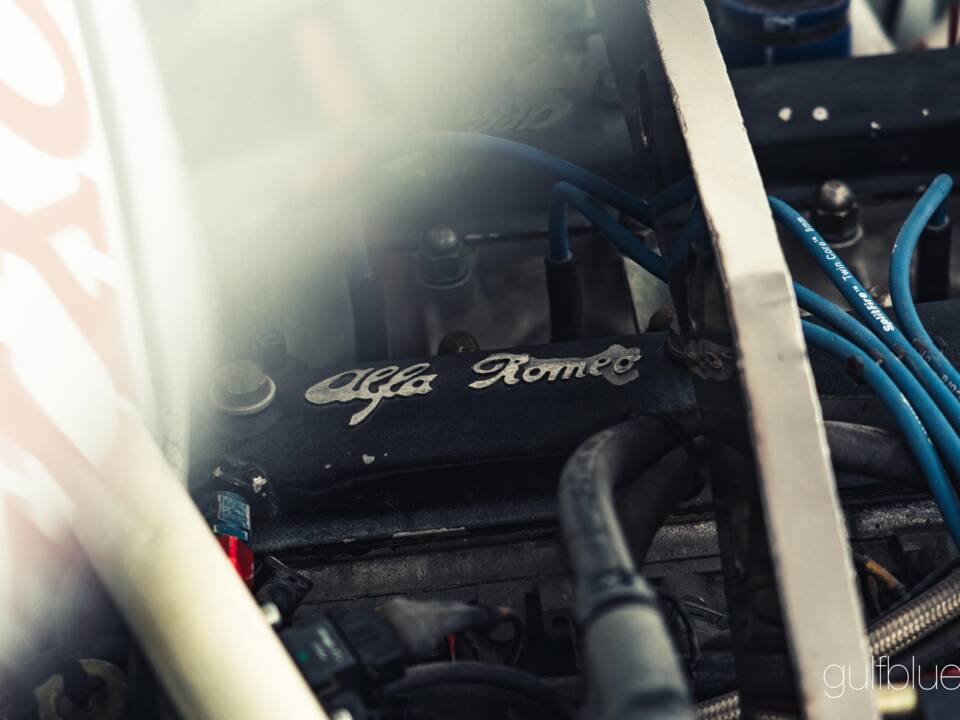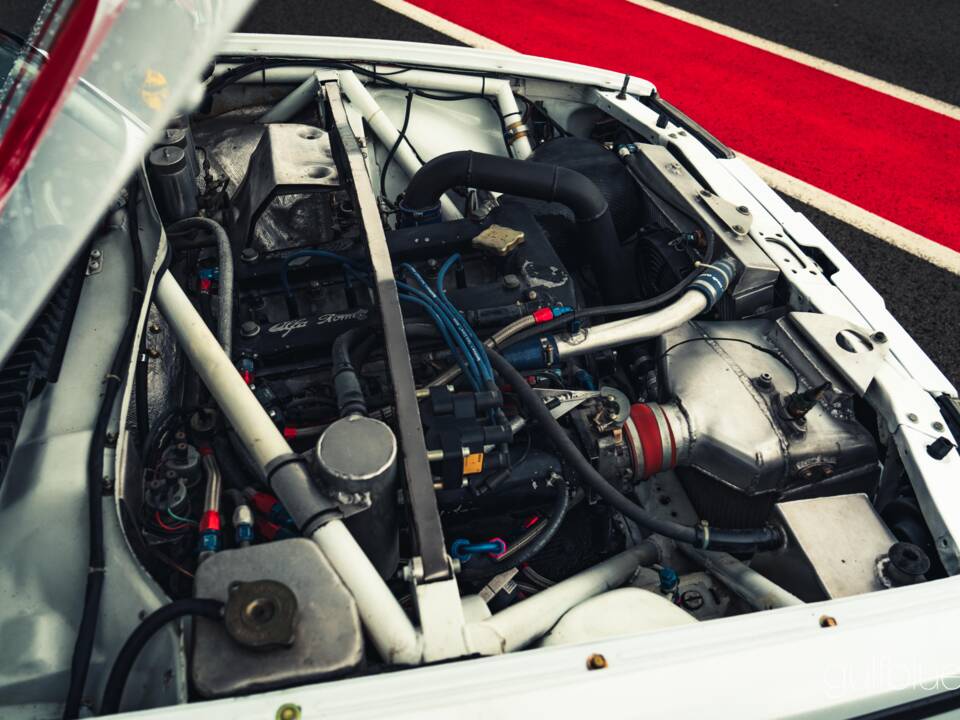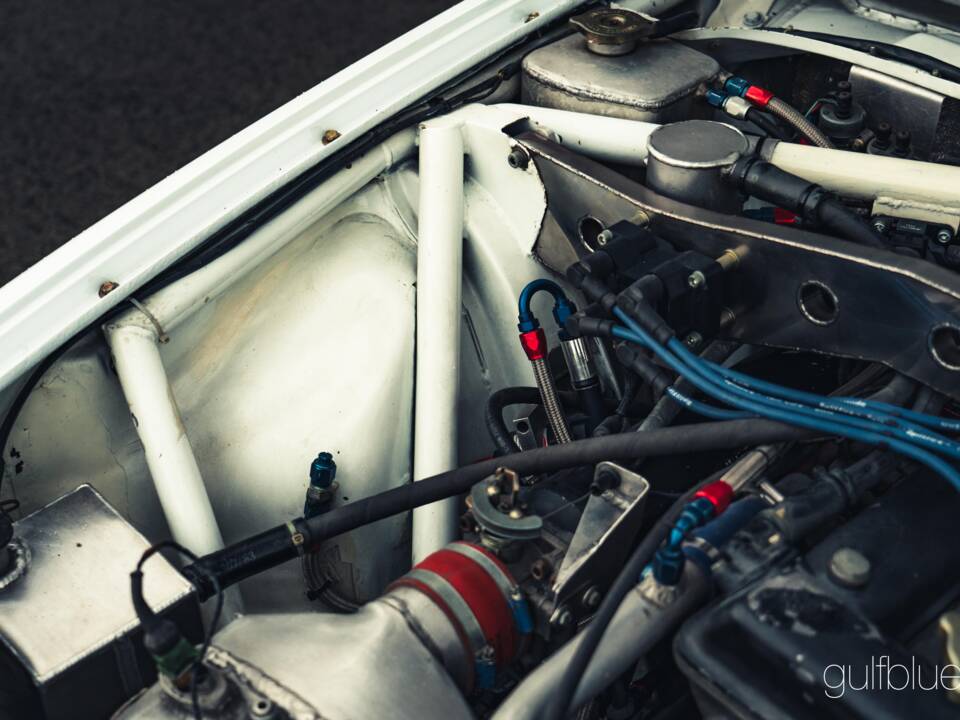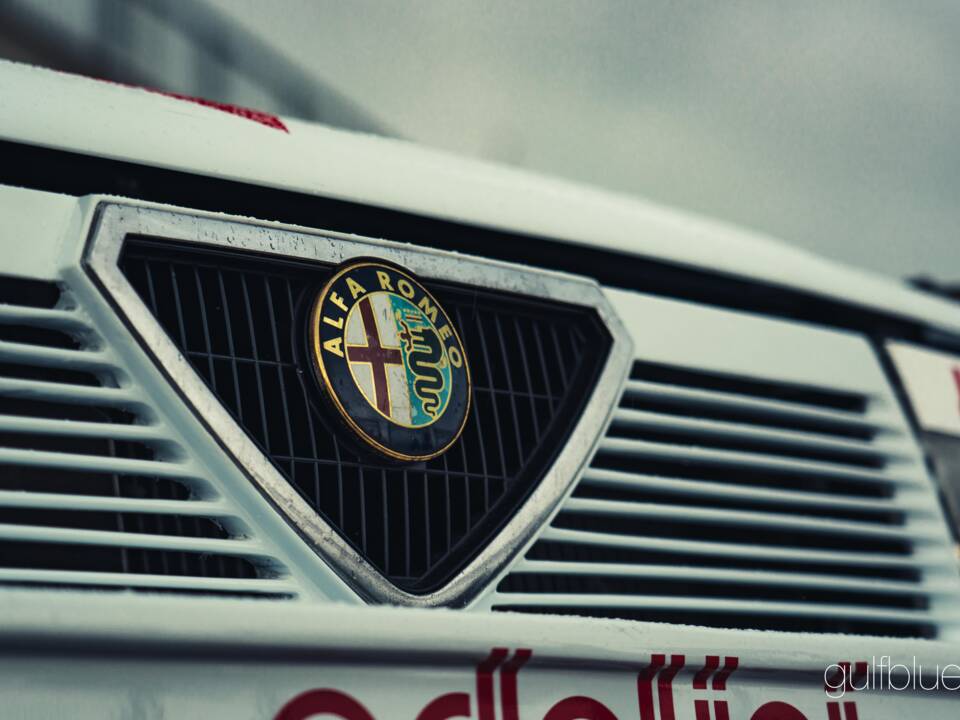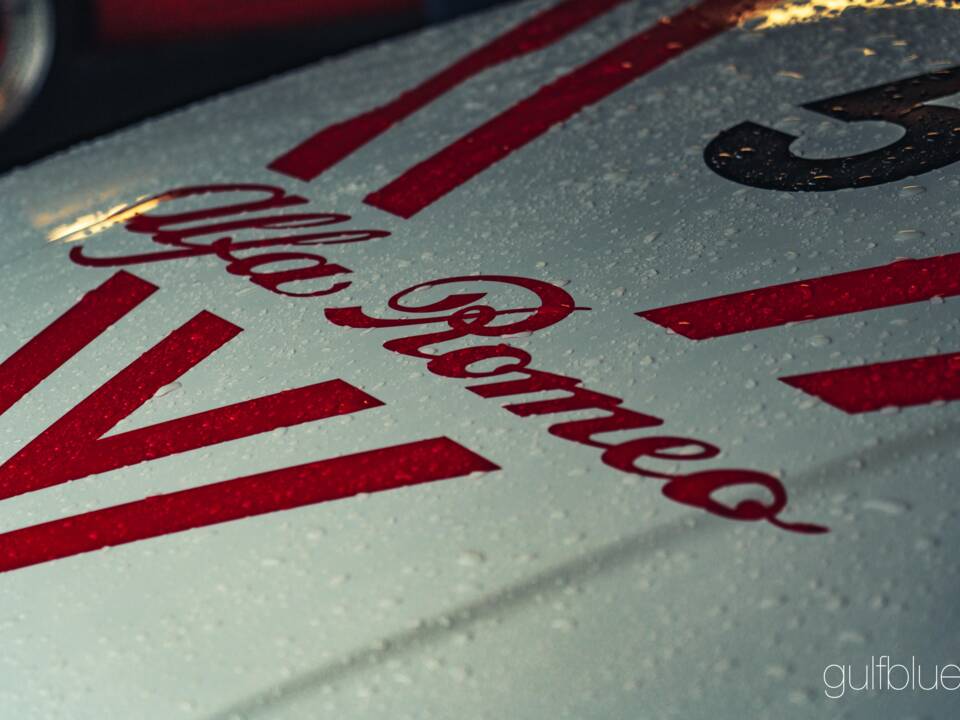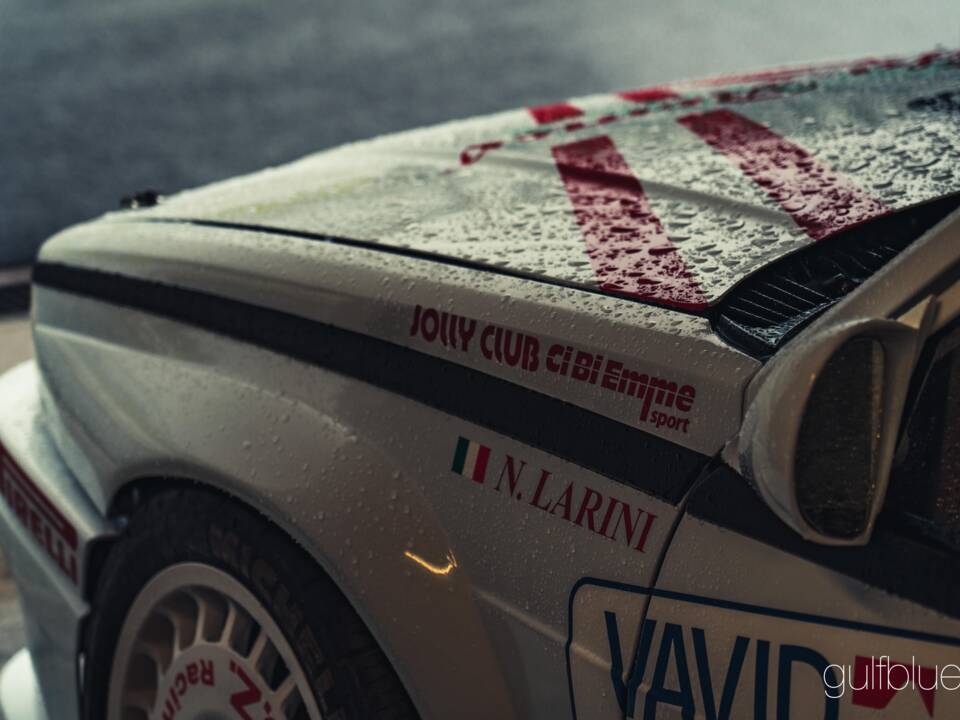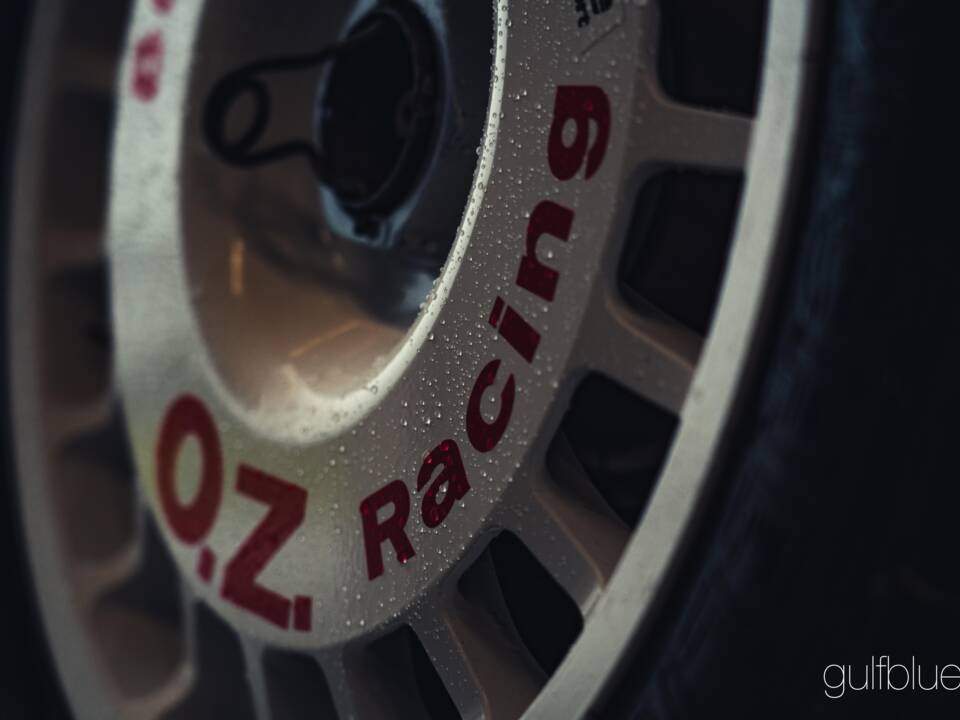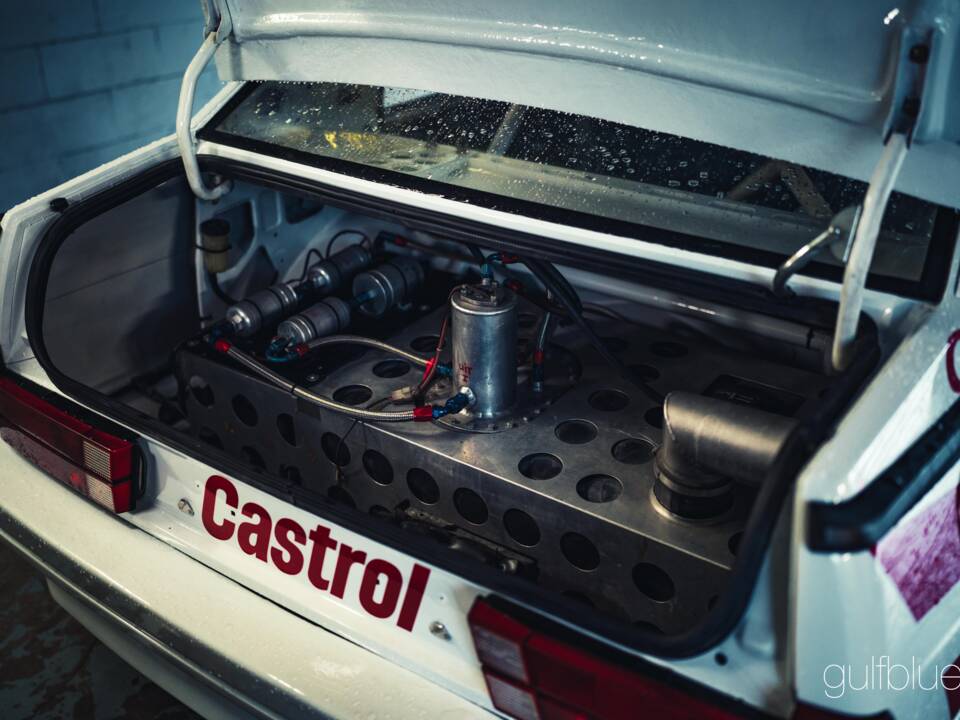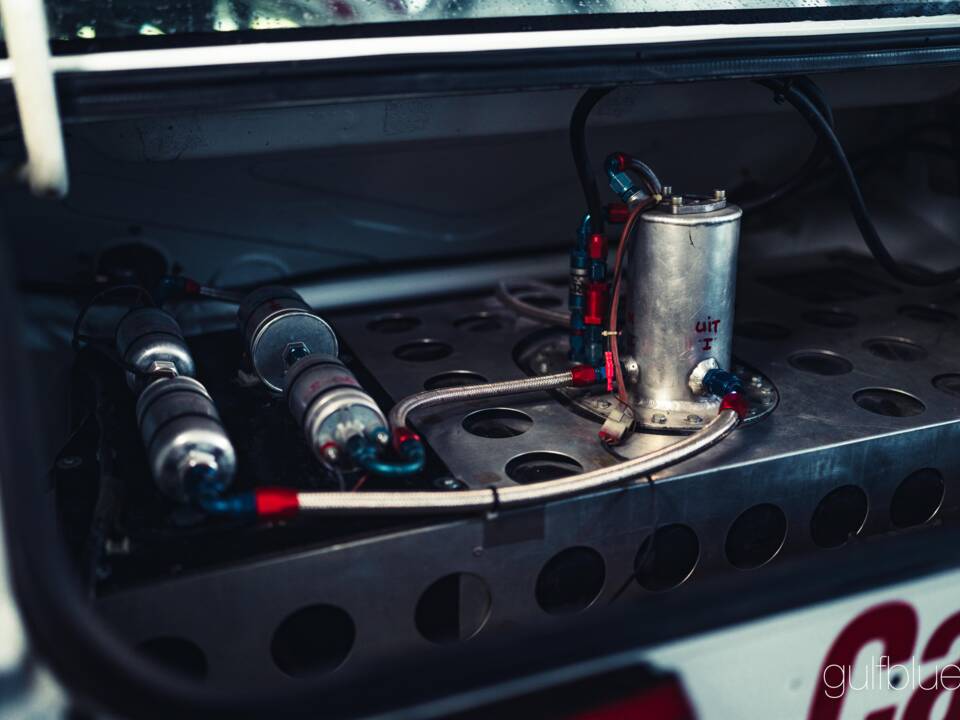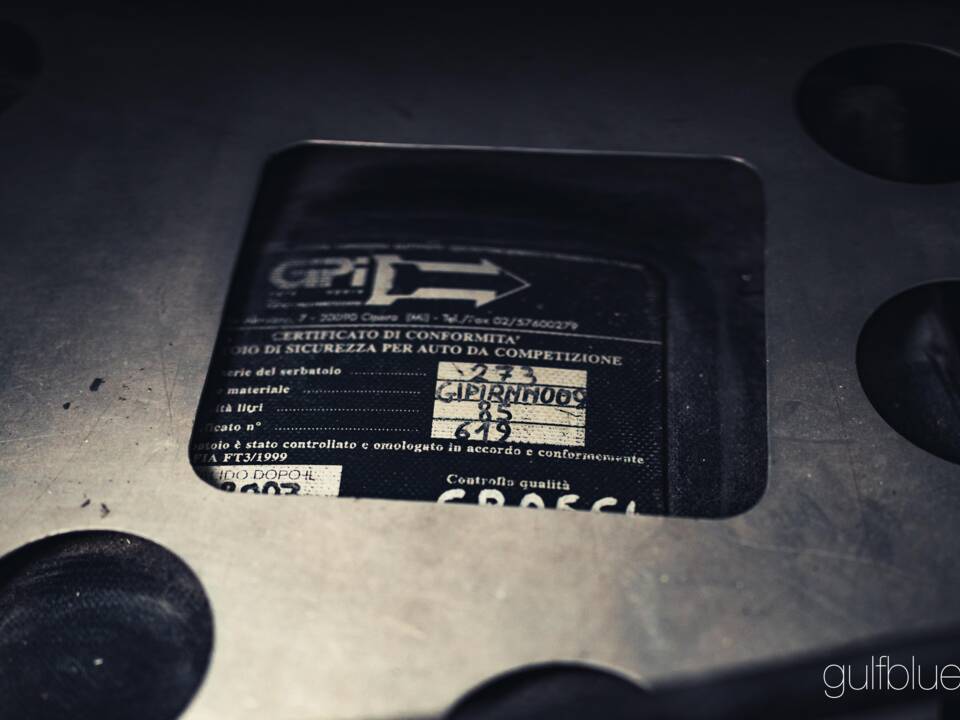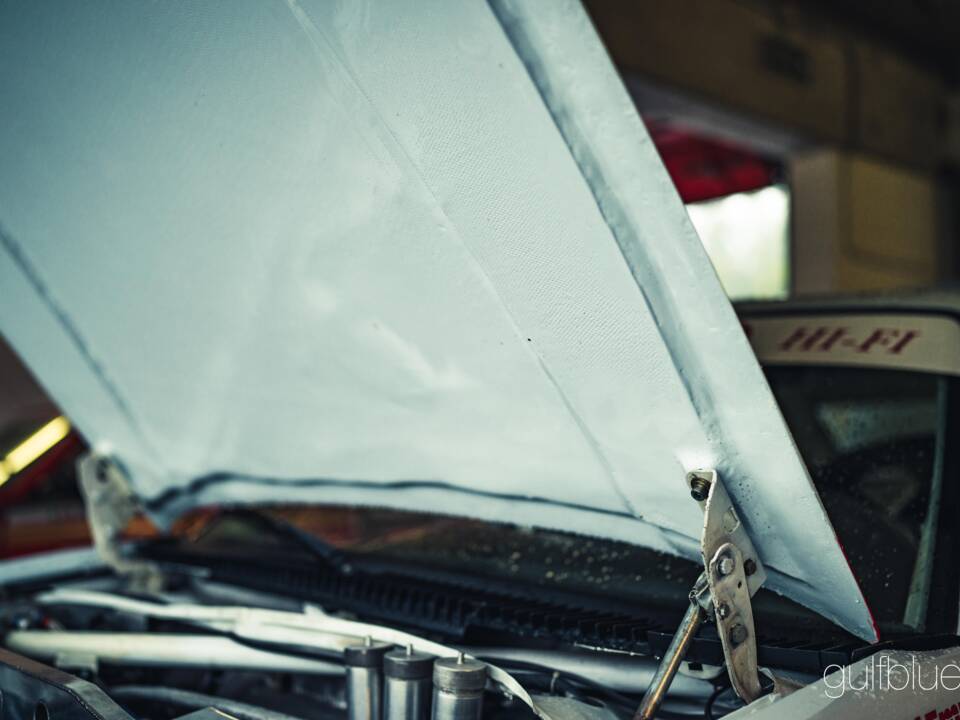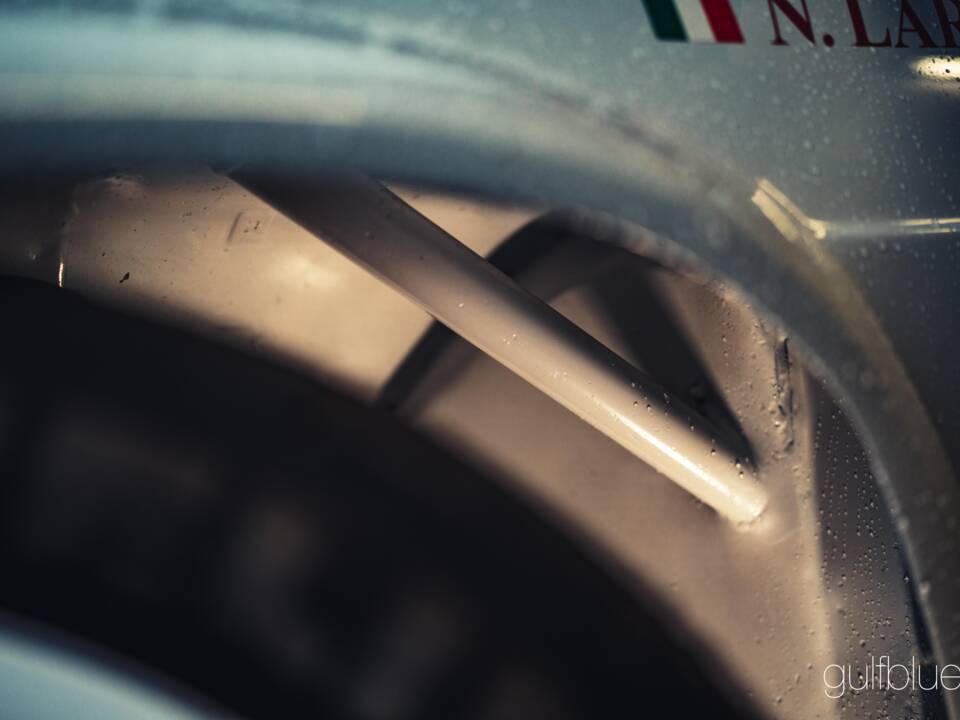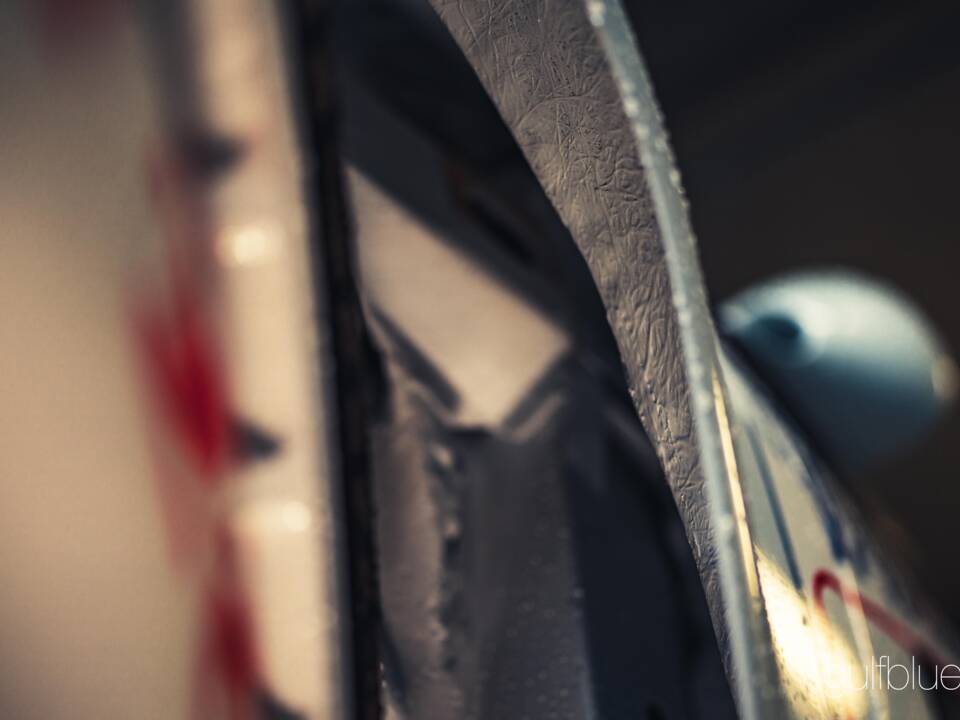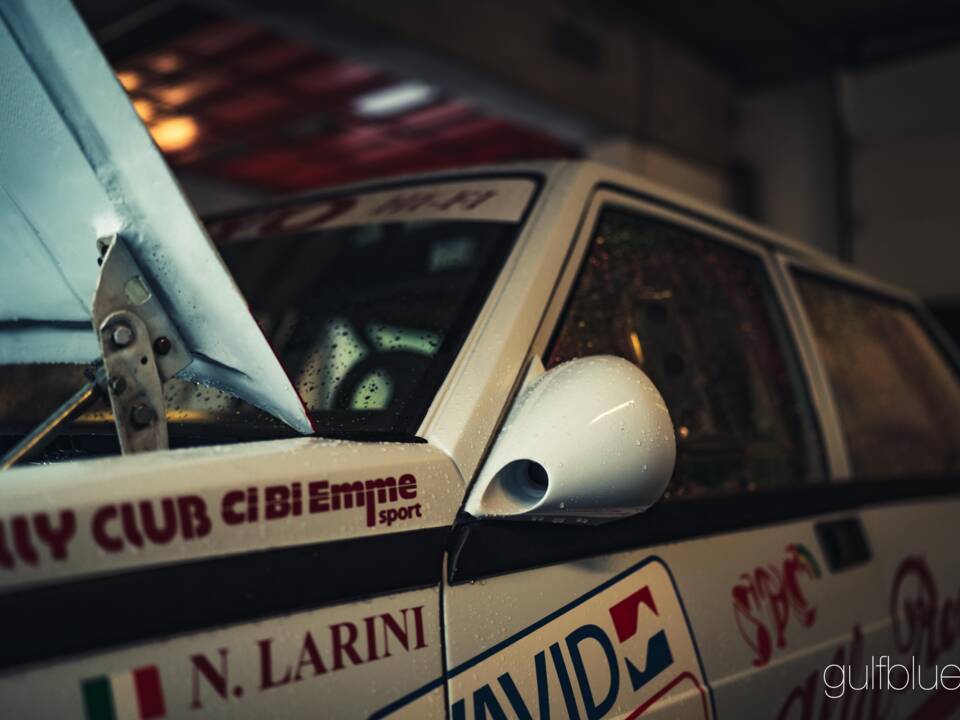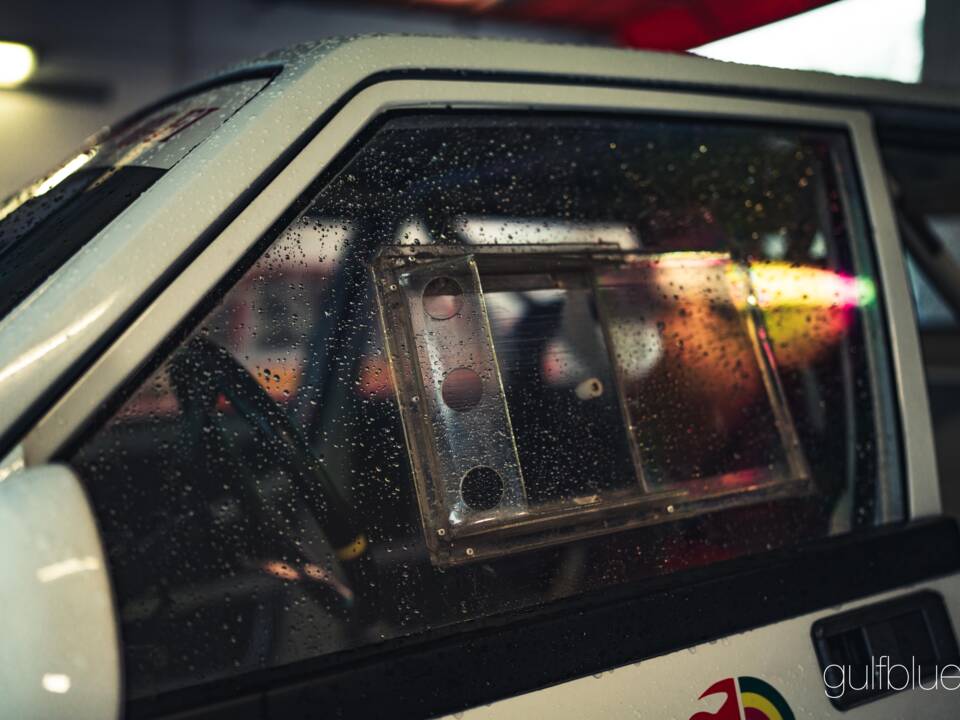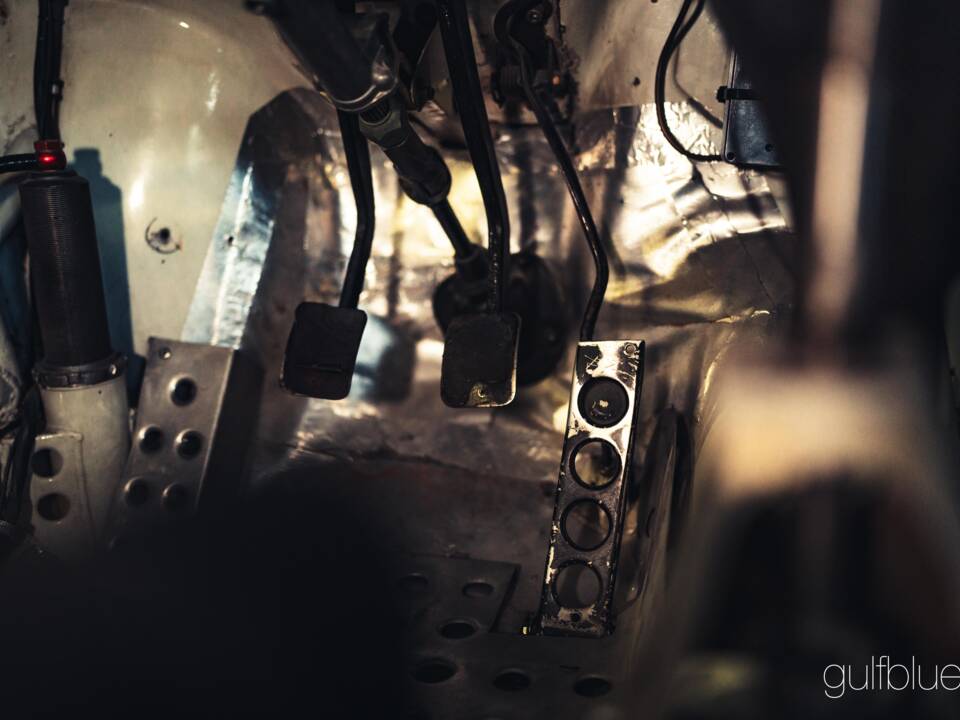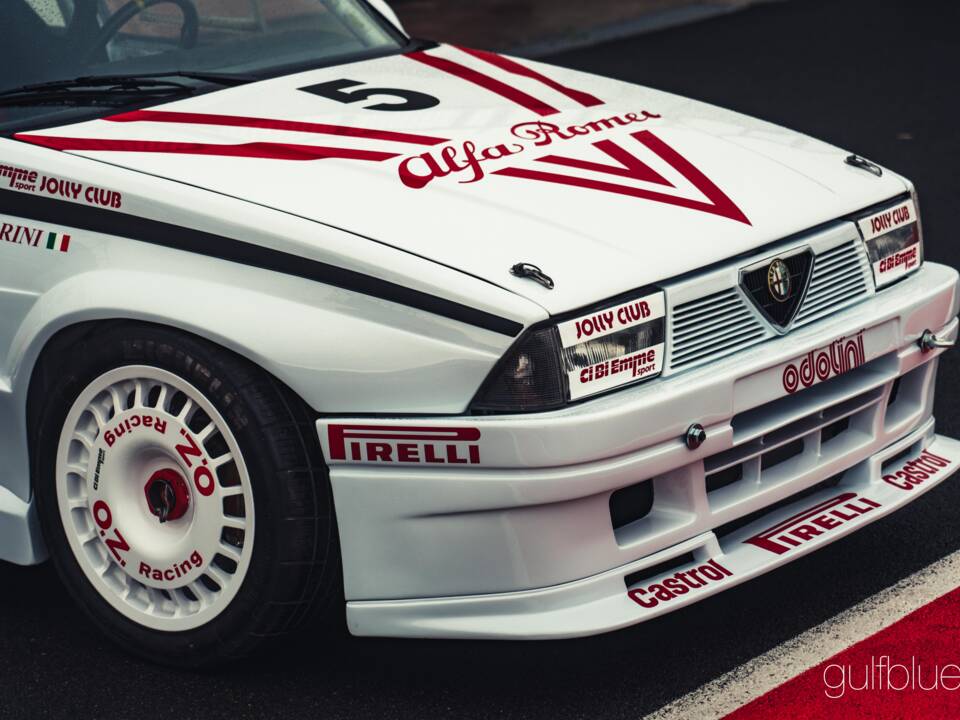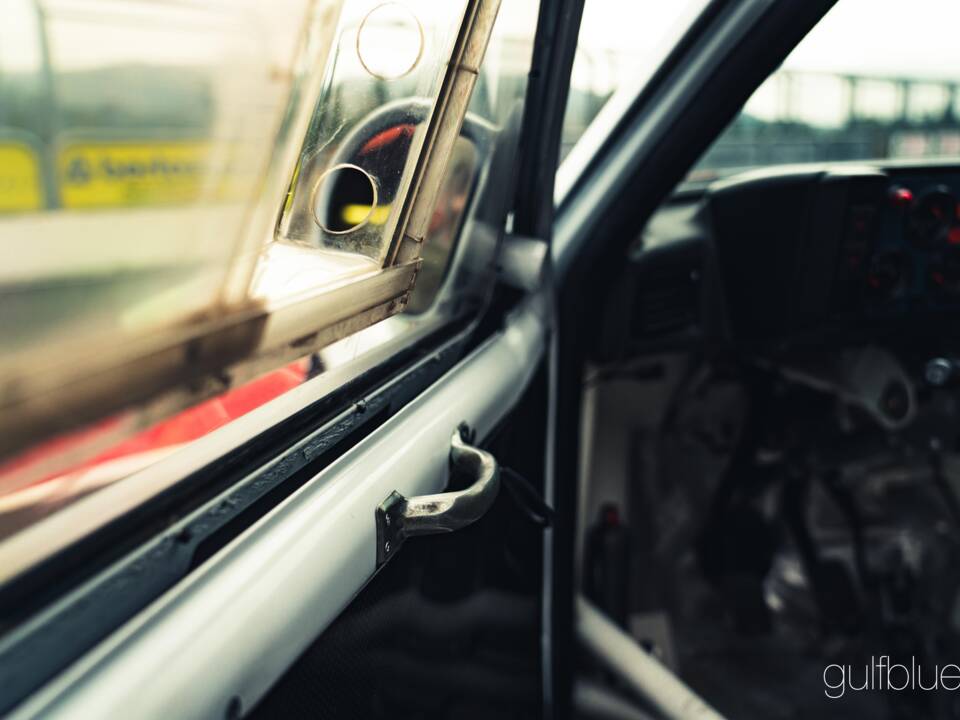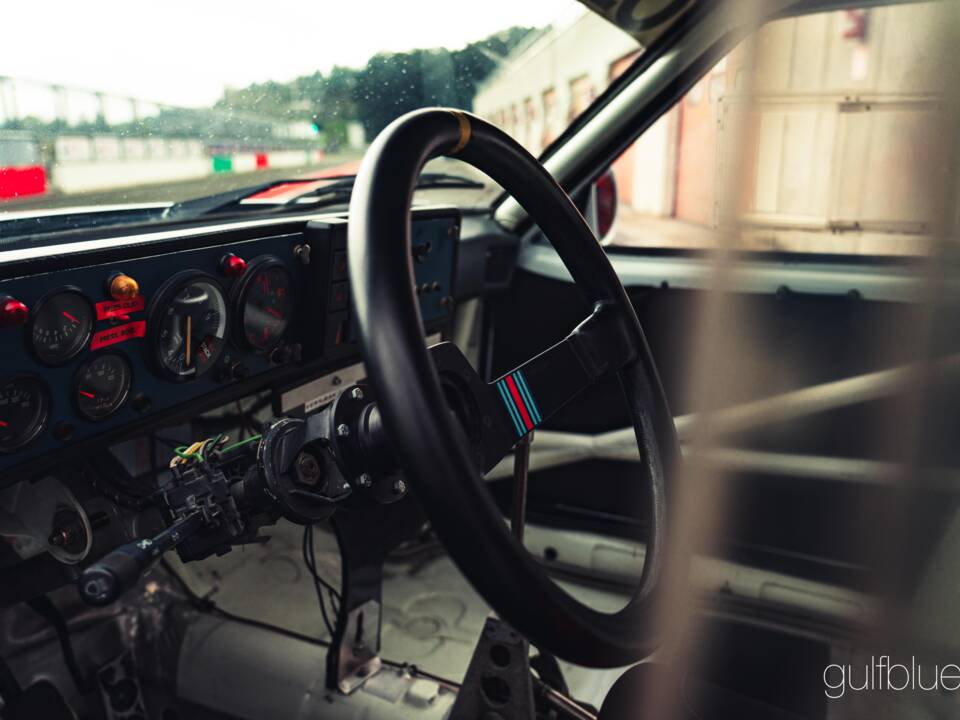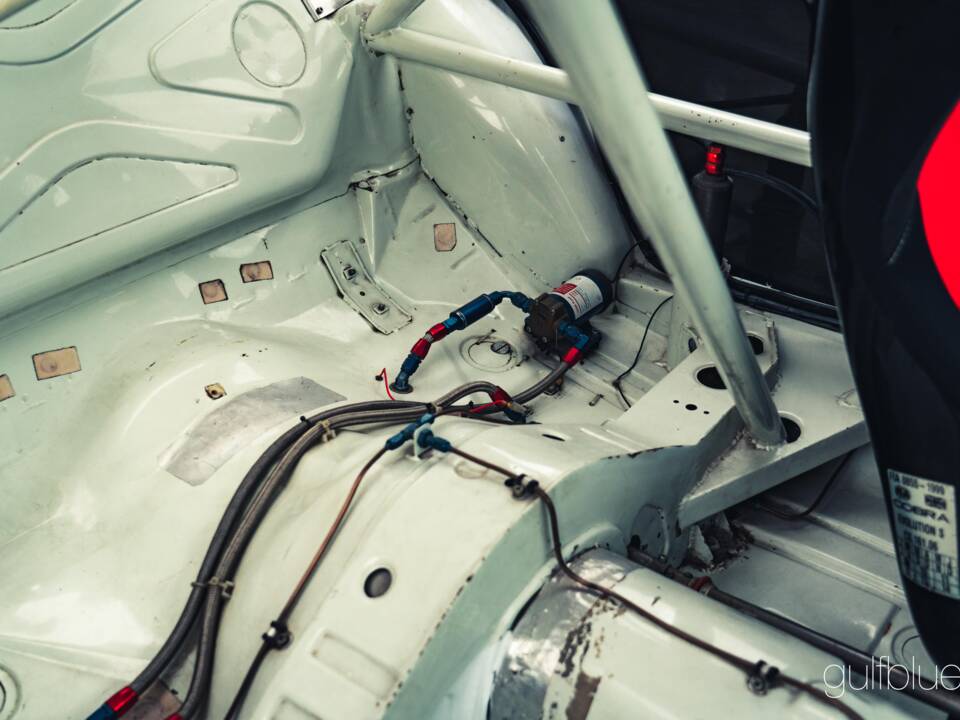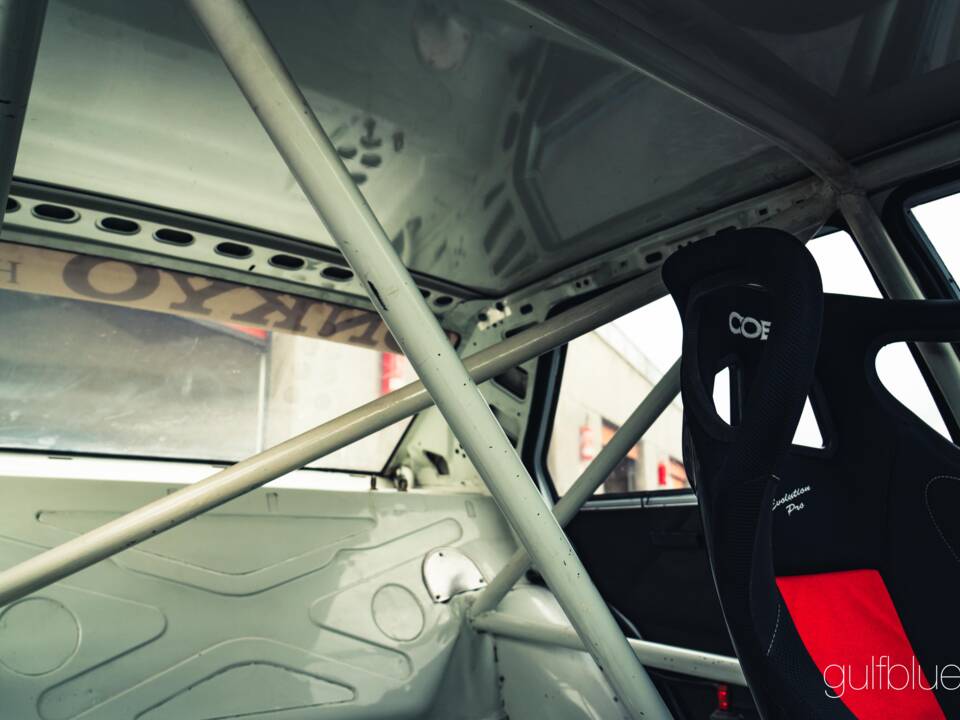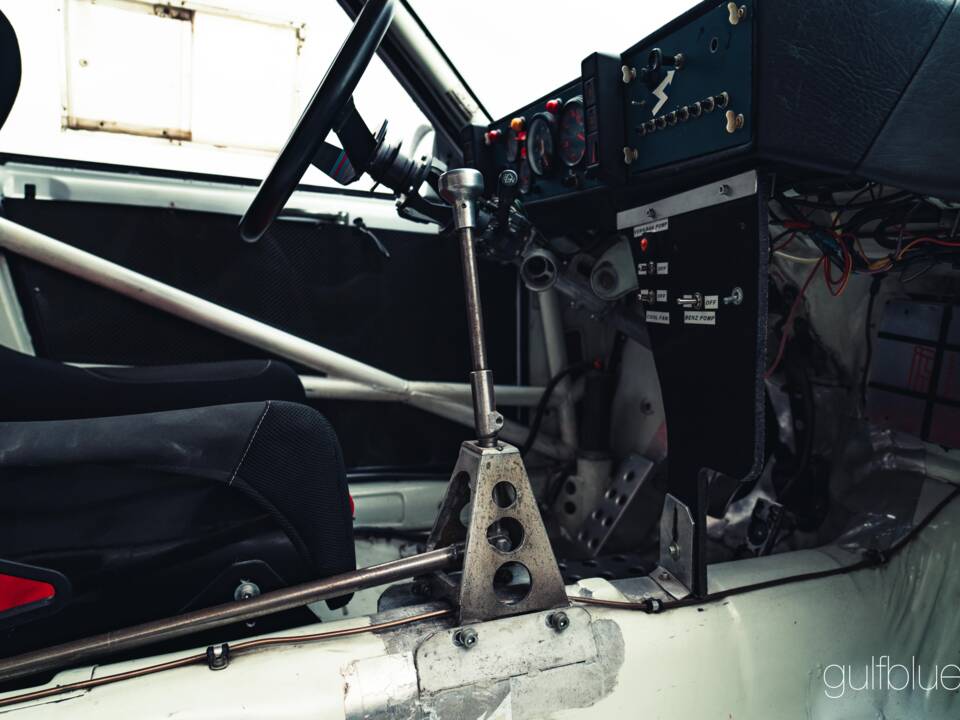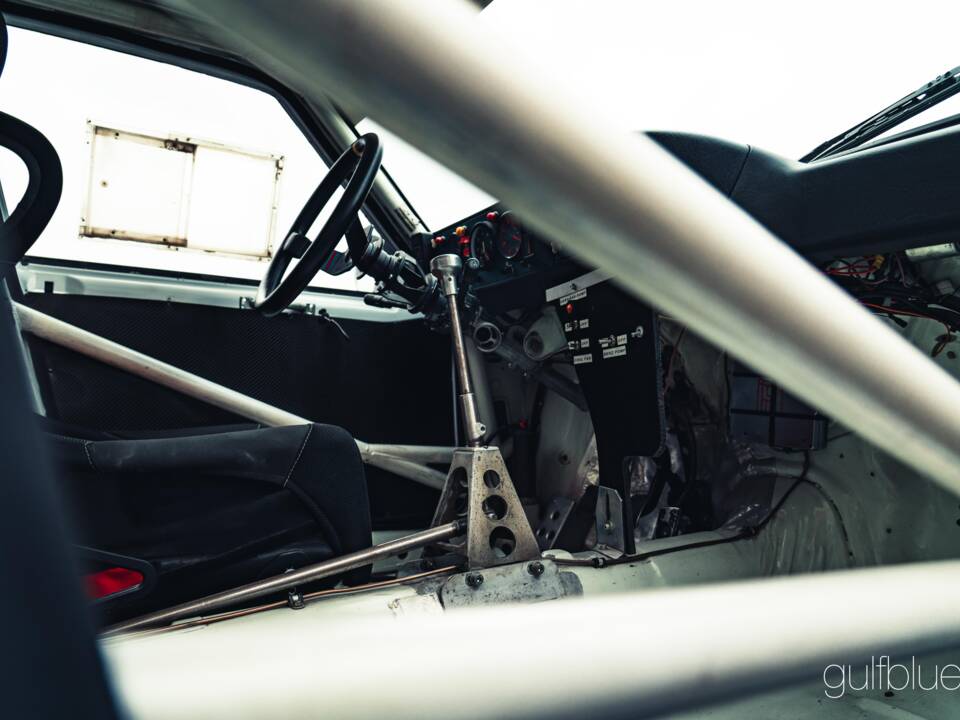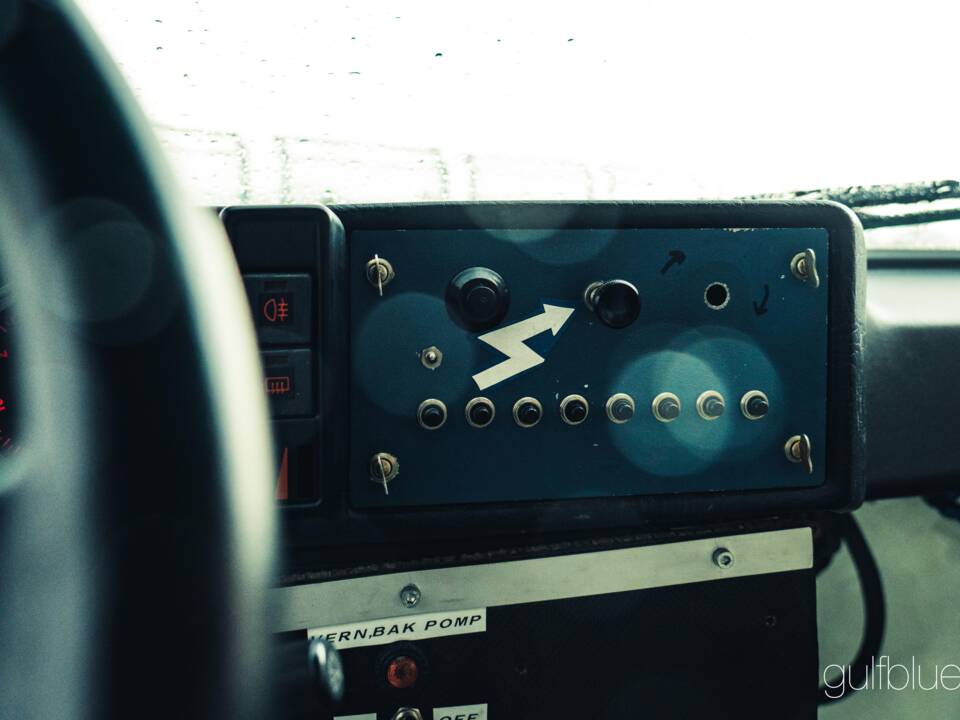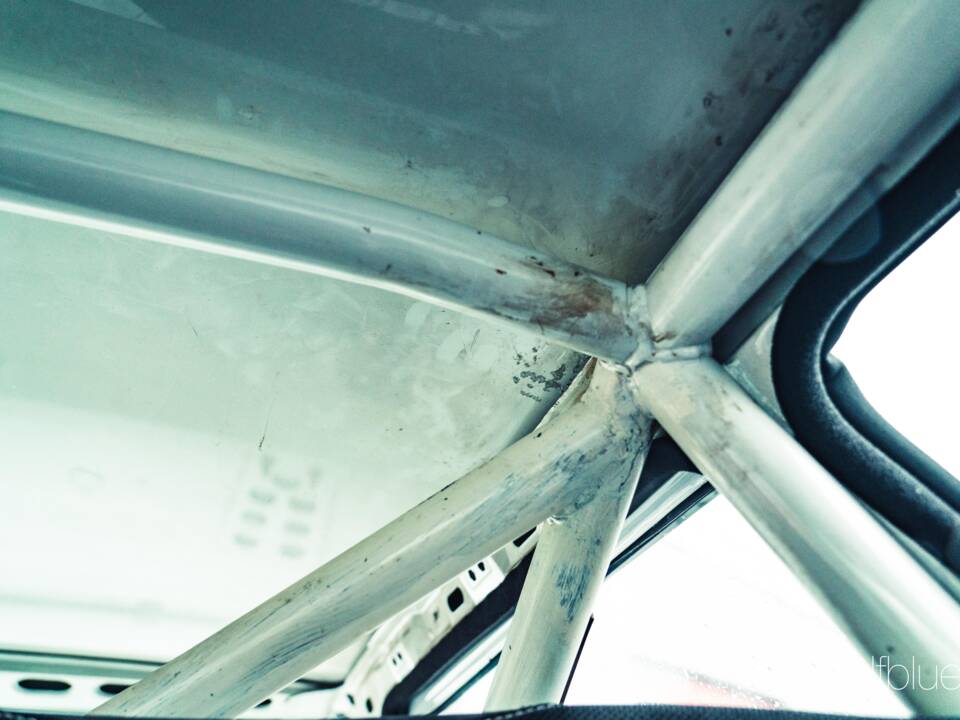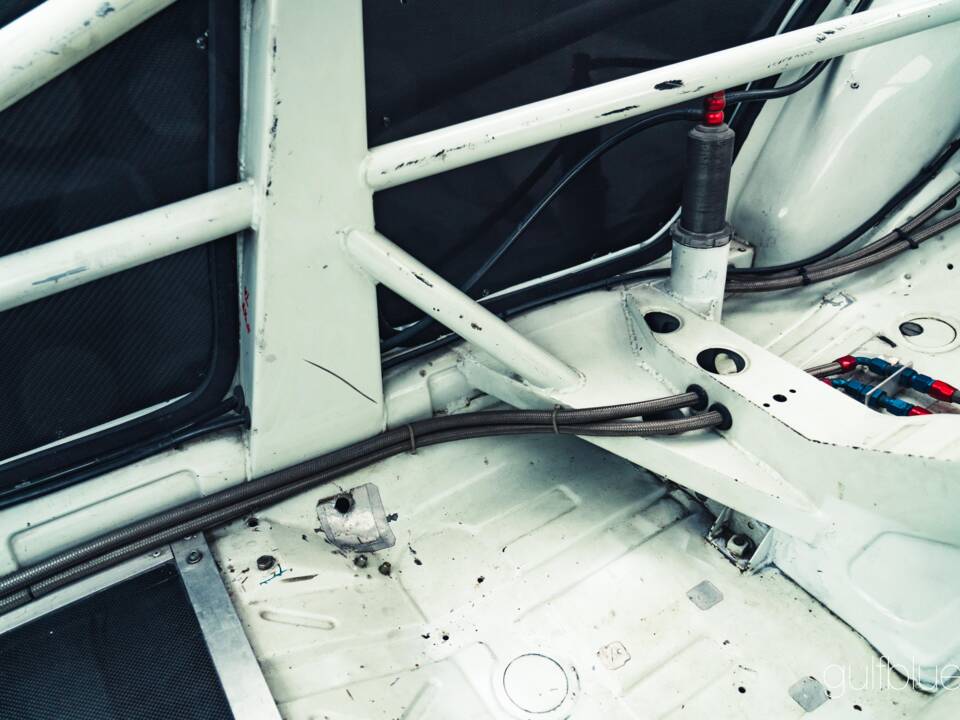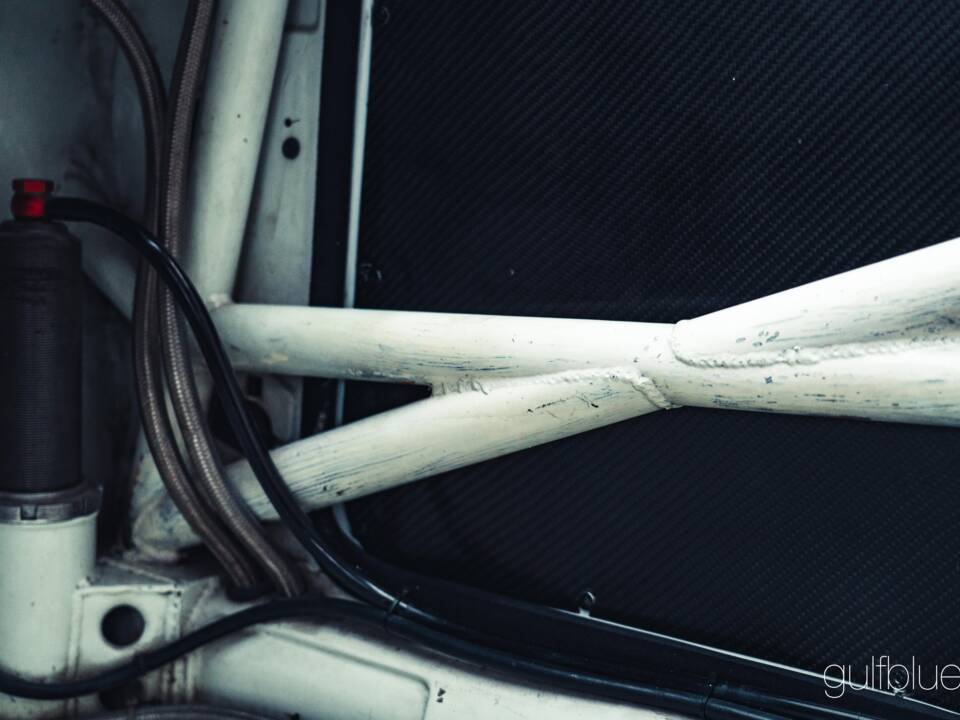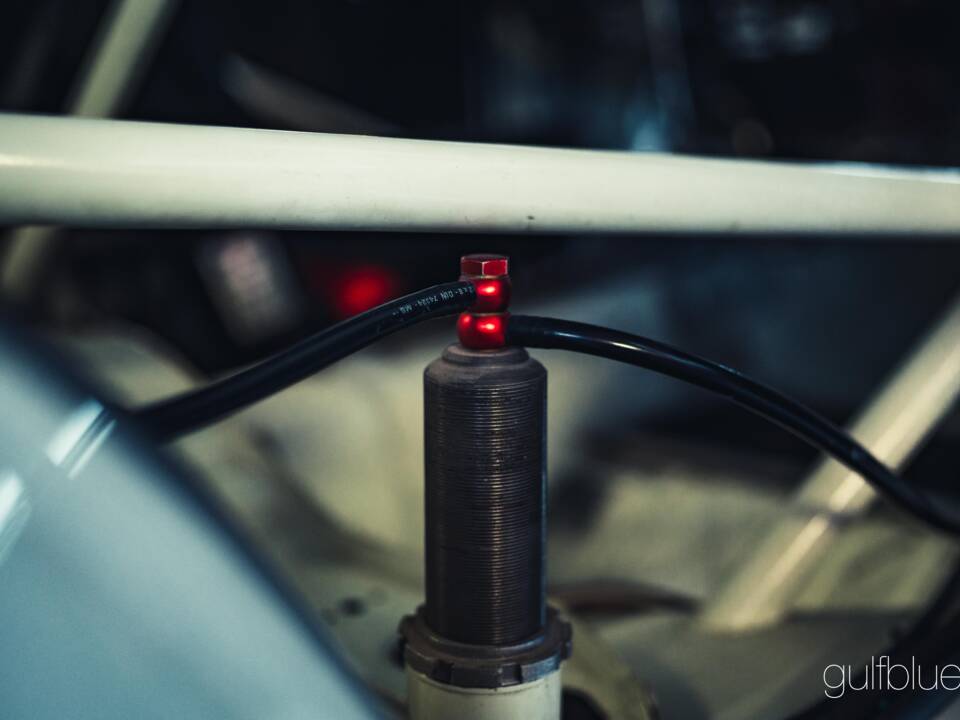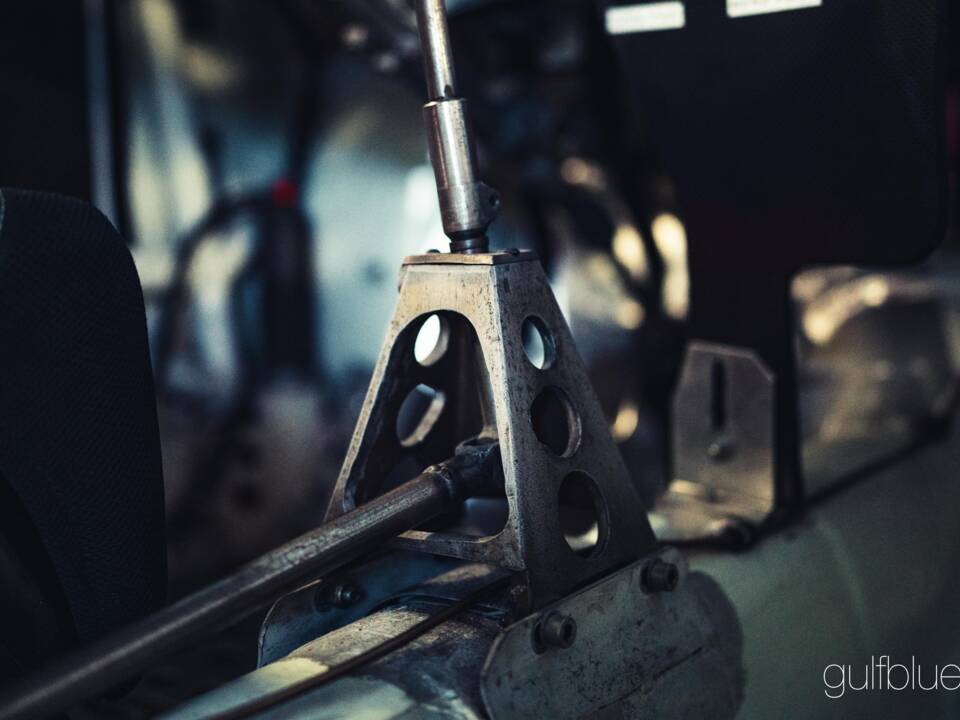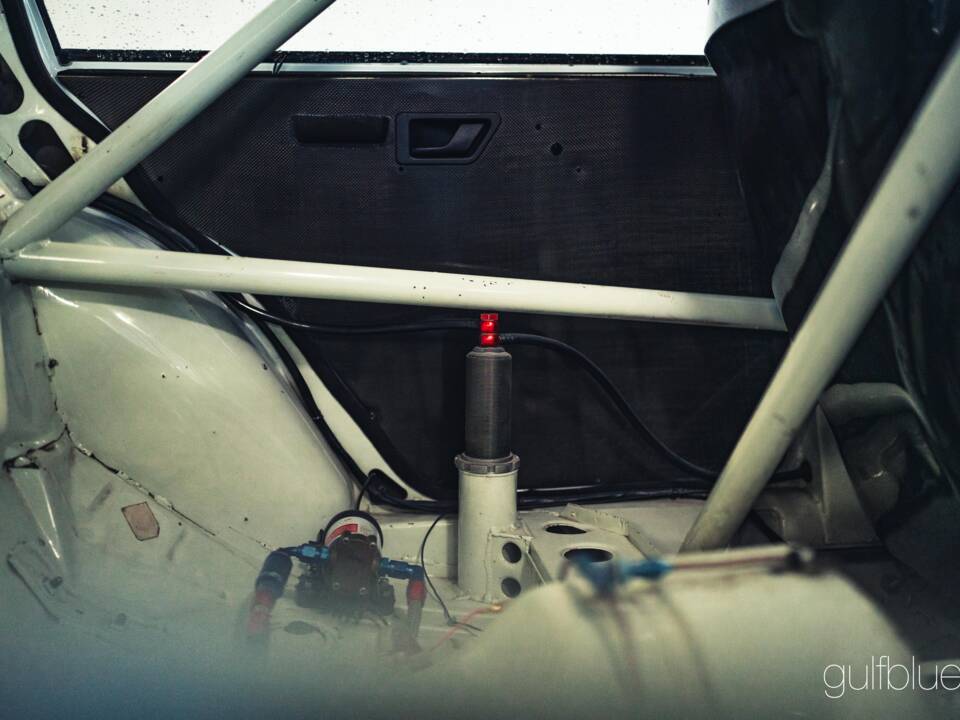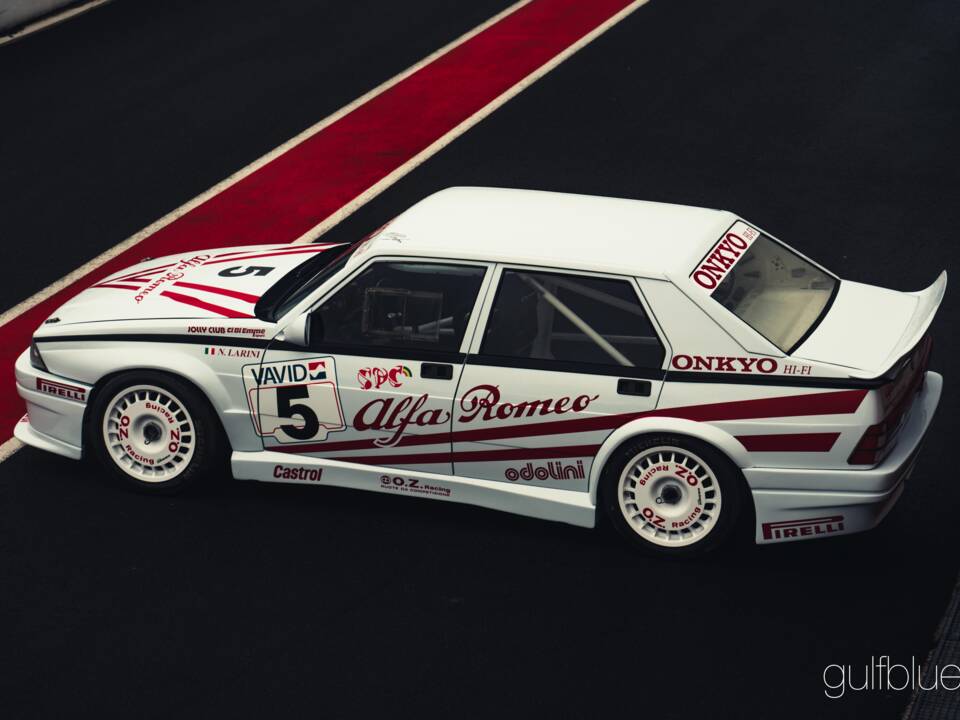1990 | Alfa Romeo 75 1.8 Turbo
official CiBiEmme - Jolly Club car, driven by Nicola Larini and Gianni Morbidelli with a great racing pedigree
official CiBiEmme - Jolly Club car, driven by Nicola Larini and Gianni Morbidelli with a great racing pedigree
official CiBiEmme - Jolly Club car, driven by Nicola Larini and Gianni Morbidelli with a great racing pedigree
Descripción
Alfa Romeo 75 S1, CBM 005, 1990
For the 1990 season, Alfa Corse decided not to directly manage its 75s in the Italian touring cars championship, the CIVT - which had presented the new Superturismo class that year - but opted for the Jolly Club - CiBiEmme Sport partnership which became the official Alfa Romeo team with two 75 S1s, white and red.
The body, ultra-reinforced and lightened according to the Superturismo specifications - therefore without the IMSA enlargements - was prepared to compete against the aggressive BMW teams that put Roberto Ravaglia, Johnny Cecotto, Gabriele Tarquini and Emanuele Pirro at the wheel of the effective M3s.
The team prepared two 75 Turbo Evoluzione - one of them is this model with chassis no. CBM005 - in the A1 Class, driven by Nicola Larini, Ligier driver in Formula 1, Gianni Morbidelli, Ferrari test driver, Alessandro Zamperdi fresh winner of the single-make series with the Alfa Boxer Formulas and Marco Brand, an expert Touring and GT driver.
Because of his commitments in Formula 1, the official driver Larini took part in only eight of the 20 races in the 10 events of the Italian Superturismo Championship, winning five, but still managed to finish third overall and best among the Alfa Romeos. He won on his debut at Pergusa, then at Misano and Varano.
In his absence, Morbidelli held high the colors of the Alfa 75 number 5, winning at Misano and finishing second at Imola. Two podiums for Marco Brand while a bit of bad luck for Zampedri, who retired.
At the end of the glorious 1990 season, CiBiEmme Sport sold the two 75 Turbo Evoluzione as it would become the official team of BMW Italia in 1991 and 1992. Motor Sport Italia Srl owned by Ernesto Vita, purchased the 75 chassis CBM005: Vita, was coming from the unlucky negative ’90 season concluded with the the Formula 1 Life team. In 1991 he decided to concentrate on Touring cars, racing this Alfa Romeo 75 Turbo Evoluzione in the S1 Class of Superturismo with Stefano Buttiero at the wheel, taken directly from Formula 3, who distinguished himself with grit fighting at the top, often against the official cars; he concluded the season with 75 points, in sixth position with a second and a third place among the best placings. At the end of the season, the car ran an extra championship race in Misano driven by Corsini/Raimondi .
In the 1992 season, the car was maintained by Motor Sport Italia Srl, which however updated it according to IMSA specs: Giovanni Bonanno and Stefano Buttiero drove the 75 during the season, together with the same team principal Ernesto Vita, Roberto Faenza and Luigi De Luca, the latter three forming a crew at the 1992 6 Hours of Vallelunga.
After few years of rest, this 75 reappeared in 2002, when it was purchased by a Dutch dealer and participated in some races of the Alfa Romeo Challenge series with a Martini livery.
Sold at a Bonhams auction, the car then recently came back to Italy where it underwent a complete conservative restoration by GPS Classic, returning to the Superturismo configuration. The interior has been kept as original as possible, with the typical blue dashboard of the CiBiEmme cars, while on the outside they worked to bring the bodywork back to the Superturismo silhouette, mounting the correct rims and applying the original decals from 1990. The mechanics are preserved and works perfectly, therefore ready for revivals and meetings.
The car could be seen by appointment in Parma.
Above a video of the Superturismo 1990 race 1 in Misano, with Nicola Larini driving.
The Alfa Romeo 75 in motorsport: Group A, IMSA and Superturismo
The 75 represented, for many years, the last "real" rear-wheel drive Alfa Romeo: it joined the first Giulia GT - the one from the 60s - on the podium of the most competitive and iconic Arese’s touring cars, literally venerated by “Alfaholics”.
It was 1985, the company celebrated its 75th birthday by presenting the heir to the "Nuova Giulietta" born seven years earlier: the 75. The Centro Stile Alfa Romeo directed by Ermanno Cressoni performed the magic of changing the skin of the '77 Giulietta, enhancing its mechanical setup: the aforementioned front engine with rear gearbox and transmission, mounted on the De Dion rigid axle, a bit outdated at the time.
Already in 1986, once the new corporate structure “Alfa-Lancia Industriale” was defined, the company passed under the direction of Fiat and consequently had to stop its commitments in Formula 1. It was therefore possible to concentrate on Touring races, for the happiness of the Alfa fans, but had to deal with rather fierce competition: BMW in particular, with the M3, put a car designed for competition on the road, while all the others were chasing after it by doing the opposite.
Teams and drivers saw a good potential in the newborn 75 and prepared it according to Group A specifications, with the V6 Busso 2500, ideal for fighting German rivals, being able to count on the homologation of larger brakes, various gear ratios, body reinforcements and various improvements in the suspensions.
In the Arese factory, instead, the Turbo Evoluzione was developed, based on the version with the 4-cylinder engine, developed specifically for competitions and produced in 500 road units, the minimum necessary for approval in IMSA and Superturismo. In 1987, Alfa Corse, under the direction of Giorgio Pianta, invented the 75 IMSA to be able to race in the IMSA (International Motor Sport Association) championship, developed by the engineer Gianni Tonti to race in the second division (equivalent displacement up to 2.5 liters): after just one year the world championship series disappeared and continued in the European and various national touring championships, which were in great shape at the time. The 75 raced with success driven by great drivers, splitted between Formula 1 and touring competitions, such as Alessandro Nannini, Nicola Larini and Gianni Morbidelli.
Among the most interesting competitions reserved for cars derived from the series, there is the Giro d'Italia: in 1988, the Giro sees Alfa Romeo enter three 75 turbo Evoluzione in IMSA configuration driven by Patrese/Biasion/Siviero, Larini/Cerrato/Cerri and Nannini/Loubet/Andrié, respectively first, second and third. The all-Alfa Romeo podium is repeated in 1989, again with the official 75s.
Compared to the car in road car, the Alfa Romeo 75 Turbo Evoluzione set up for these competitions has a further lightened and strengthened body, and to improve precision and rigidity the connecting elements between the body and mechanical parts are replaced by uniball. The inboard brakes of the road version have been positioned on the wheels, in a more conventional position; like the rear axle, the front was also modified and included springs to support the work of the torsion bars.
To fit into the class up to 3000, the engine displacement was reduced from 1779 to 1762 (multiplied by 1.7 as it was supercharged), a capacity recovered by the enormous Garrett turbine with an output from 370 to over 400 horsepower in the latter evolutions. The power was put to the tarmac by the 17” wheels and thanks to the 5-speed dogbox produced by Brena, a masterpiece of technology that nevertheless requires experience in use.
The even more extreme IMSA car features further variations compared to the one seen in the CIVT (Italian Speed Touring Championship) first and then in the Superturismo: in particular, we see widened fenders by a further 100mm to accommodate the wider wheels, new front and rear spoilers, bonnets and fenders in composit material. Weight? With this diet, the needle on the scale stopped just under 1000kg.
Further details on www.gulfblue.it
Detalles del vehículo
Datos del vehículo
- Marca
- Alfa Romeo
- Serie del modelo
- 75
- Modelo
- 75 1.8 Turbo
- Primera fecha de registro
- No provisto
- Año de construcción
- 1990
- Kilometraje (leer)
- Número de chasis
- No provisto
- Número de motor
- No provisto
- Número de la caja de cambios
- No provisto
- Coincidencia de números
- No
- Número de propietarios
- No provisto
Detalles técnicos
- Carrocería
- Berlina (4-doors)
- Potencia (kW/CV)
- 302/410 (Fábrica: 110/150)
- Capacidad cúbica (cm³)
- 1762
- Cilindro
- 4
- Puertas
- No provisto
- Manejo
- Izquierda
- Caja de cambios
- Manual
- Marchas
- No provisto
- Engranaje
- Trasero
- Freno delantero
- Disco
- Freno trasero
- No provisto
- Combustible
- Gasolina
Configuración individual
- Color exterior
- Blanco
- Color interior
- Otros
- Material interior
- Otros
Condición, registro y documentación.
- Tiene peritaje
- Condición
- Informe de inspección del libro
- Matriculado
- Listo para conducir
